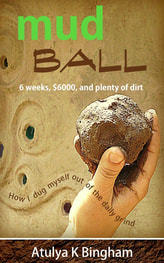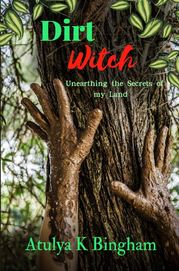|
A feisty wind tore at the cliff face. Head down, shoulders hunched, I pushed along the bracken-stuffed trail. I’d reached the north west corner of Scotland. It was another planet up here; a buffeted, watery world that swam green and grey from the shore. People were few and far between. Petrol stations scarcer. I hadn’t sensed this depth and breadth of remoteness since Turkey. Britain may be a crowded island, but almost everyone is clustered in the southern half of it. I grinned as I hiked. Because I was on a quest. Scoraig was my destination, an off-grid community huddled on a distant peninsula in Wester Ross. It was a landscape of names pulled out of a fantasy novel, and I was revelling in it. As I drank in the clouds, I wondered what an off-grid world might look like in the UK. In this case, only the truly dedicated would ever find out. The road to Scoraig is an arduous, sheep-obstructed thread; coiling up mountains and plunging into lush valleys. I had considered abandoning the visit a couple of times the previous evening as my fat van teetered along the narrow tarmac, listing like a ship in trouble. Where the road ended, the trek began. Three miles or more of it. All along a jagged stone dinosaur of a precipice. It was amazing. A spatter of rain hit my face. I saw the dark body of the sea thrashing against the rocks below. And then finally a few stone shacks pulled into view. Even I, weathered soul that I am, muttered “hard core”. “There are about 20 crofts here,” Davy led the way to his house. With his long auburn beard, he looked suitably Celtic. Though he sounded more like he was from Nottingham. His small son bounced on his back relishing the wind whipping at his hair. “Are all the crofts off-grid?” I asked. “Yes, you can see the wind turbines. We’re really lucky. Hugh Pigott the turbine specialist lives here too.” Davy pushed open the door to a large stone house. “Are you Scottish?” I asked, because hey, I was curious. Davy laughed. “Yes, I’m born and bred in Scoraig. But because people have moved here from different places, Scoraig now has its own accent.” He pulled off his boots. I bent and untied mine. As soon as I walked into the living room, I felt a warmth. A familiarity. The aura of a self-built home is always palpable. A woman my age sat on the sofa. “Welcome!” She smiled. Her eyes and skin were fresh. Something happens to people’s faces when their souls are in their bodies and their lives. Oh what a happy day I spent on Scoraig! We gathered our lunch from the burgeoning vegetable garden. I gawped enviously at Davy’s wind turbine and towering battery bank. Finally we discussed the advantages of no road access, before eating the best food I’ve tasted in a long, long while. “You know I’ve got about 10 or 15 people who’d like to hear about earthbag building.” Davy said as he collected up the plates. “Really?” I was dumbfounded. I couldn’t even see that many crofts from the window, let alone people. But they were there. Hiding in the folds of the hills. As I soon found out. Half an hour later we were sitting in the community centre with 20 Scoraigians; old and young, men and women, from all over the British isles, yet all choosing this remote off-grid world, a world modernity views as quackery and hardship. With the exception of communes, it was the first time in my life I’ve sat with so many people living a similar alternative life. I was miles away from Mud Mountain in a completely different climate, on a completely different sea. And yet I felt at home. It was almost ten pm when I threw my pack on my back and made for the door. But darkness was far away in Wester Ross. It was an ever-twilight dreamland. I wandered back along the craggy ridge, belly stuffed with home-grown food, mentally nourished, invigorated and alive. And I all but skipped the three miles back to my van. It’s such a simple idea. A house. A family. A garden. A community. So unostentatious compared to the glitzy trappings of fast-track careers, bloated bank accounts, and great ego-propping acquisitions. So uncomplicated. And yet so fulfilling. People like to blame the system and the government for the polluted carcass that is urban modernity. And that’s convenient. But we create the system. We fuel it. We are it. And with every pound or dollar we spend on a given product, we vote for the direction it takes. I’m not wagging the finger, because I too am a part of it. Nor am I advocating revolution. What difference would it make when people’s minds and souls are so contorted out of shape they don’t even remember who they are? Or the possibilities open to them? Right now? At this very moment? Skirting along the edges of this selfsame system? Back on Mud Mountain, I heard many times that it was impossible to do what I did in the West. Especially the UK. It’s a small, crowded place after all. I harboured my suspicions, but I held my tongue, and waited until I saw for myself. After two months or more or touring, I’ve seen. And what do you know? It all looks oh so familiar. There are hundreds of examples, each unique in shape and form, of folk creating beautiful worlds for themselves in the UK. Community buyouts like on the Isle of Eigg, hidden mud homes in forests, local hutters’ groups, eco-communities who band together to gain permission for self-build natural homes (Tinker's Bubble is just one example). Unlike Turkey, you don’t have to be under the radar for many of them. Some even manage government funding! Similar possibilities exist everywhere else in the world too. Everywhere. For the most part, the greatest obstacle we face is not the system, nor the government, but the limits of our minds, our addiction to the (un)comfort zone, and our lethargy. Fair enough if this isn’t the lifestyle you want. I respect that. We are all different. But if it is your dream, if you want to thrive in nature in a house you built yourself, pay no heed to the throng of hopeless whiners telling you it’s impossible. They don’t know what they’re talking about. Do you enjoy these posts? If so please consider supporting me on Patreon, and joining our huddle of Patrons. Many thanks to the Mud Sustainers and all the folk supporting already! It is much appreciated.
8 Comments
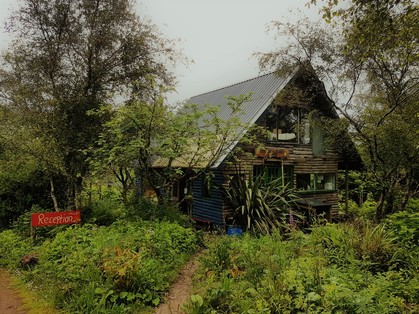 “The birds were talking to me. It was an entirely different kind of consciousness.” I blinked in the twilight at the bright-eyed fellow stoking the fire in front of me. Yes, the stove was burning. In the last days of June. Because this was the isle of Skye. I had pushed further north up Scotland’s west coast, to places that cling to daylight’s fringes. Places the sun barely leaves. Solstice was only days behind us. “I lived in the forest for four years,” Ludwig said. He was a fellow with a piercing stare. I recognised it. The eyes of wild people are always brighter. Sharper. Uncompromising. “What did you live in?” I glanced about the spacious wooden house. Evening was slowly sliding beneath the roof, smudging its lines. I couldn’t believe I was chatting to someone else barmy enough to completely lose themselves to nature. “Erm, I rescued a 100-year-old tent from the skip, and made it waterproof using resin from the pines from the land. People came to help. I hardly used any money. About £25 a week. Sometimes I busked. That was hard work.” Ludwig closed the stove door, and wandered over to a shelf. Reaching up, he grabbed a cardboard box and placed it on the table. “Did you grow your own food?” I asked, peering into the box. It was full of pieces of birds: Claws, feathers, wings. I blinked, and recoiled slightly. I couldn’t quite decide if I was talking to Bilbo Baggins or Gandalf. “Not in the beginning. That took a while. People brought me food sometimes. Other times I foraged in bins. You wouldn’t believe what people throw out.” Ludwig pulled a chair from under the table opposite me. “Yes, the West is nuts! It’s not like that in Turkey. No one in my village would have thrown anything half decent in the rubbish. Not even bits of old wood.” I felt a warm glow as I remembered my village back in Lycia. How my neighbour Dudu would covet plastic bags and water bottles. How we’d fight for fallen trees. Dusk settled into the corners of the house. Ludwig sat back and grinned. He was far from his forest now. Just as with me, Gaia had nudged him along. And it was hard not to view it as a promotion. Because the homestead we were now chatting in squatted within 15 acres of land, all of which was now under Ludwig’s stewardship. It was one of Skye’s most secluded peninsulas and comprised a clutch of coves, beaches, and ensorcelled forests. Otters and seals dipped in the green water. Spirit eyes peered at me from the trees. It was one of those special spaces. Where nature and humans create alchemy. “What’s this box of dead bird bits for?” I asked at last, unable to ignore it. “I use it for teaching. It’s great for children.” My host pushed the box a bit closer. I stuck my hand in and rummaged about in the grisly, ornithological lucky dip. A game is a game. You have to play. “Which bird’s feather is this?” I asked pulling a black and white striped plume from the box. Ludwig sat back, formed a bridge out of his hands, and shrugged. “What do you think?” I shifted on my chair. “I’ve no idea. I’m hopeless with bird names, especially in this country. I haven’t lived here for 20 years.” Well, I thought I’d better have some excuse for my ignorance, didn’t I? “Which part of the bird is it from, do you think? The breast? The wing? The tail?” I turned the feather over and stroked it. It was soft and silky. “I’m not sure. Not the breast. But could be the wing I suppose.” Ludwig’s face was deadpan. I held the feather up, and peered even closer at it, hoping to see the bird in it somewhere. But no amount of hard staring drew the answer out. Turning back, I asked again, “Which bird is it?” feeling my eyes straining in curiosity. Bilbo Gandalf shrugged and sat back. He was giving nothing away. I pulled my chair closer to the table while I racked my brain, trying to haul out mental images of black and white stripy birds that might live around the Scottish west coast. None came to mind. Eventually, the bird collector stuck his hand in the box once more. He pulled out two more stripy feathers, much longer than the one I was holding. Then he bunched them all together and held them upright. Immediately I saw a tail. “Pheasant! It’s a pheasant!” I grabbed the three feathers and stroked them lovingly. “Well, that was a bit tricky, you have to admit,” I chuckled. Carefully replacing the feathers in the cardboard box, I mused on the art of teaching. The patience required. How brilliant teachers always stand back and allow students to own their learning experience. “What do you have in mind for this place?” I asked at last, pushing my chair back. Ludwig’s face became animated. “I want to create a living, breathing example of permaculture in action. I’m a qualified permaculture instructor and have been teaching it for a while now. But my real passion is to get more people to reconnect with nature. To really feel it. Because without that…” I moved to the edge of my chair, and gripped the wooden handles. Twilight lingered in the windows creating lucent holes in the dingy walls. “Yes, I feel exactly the same way. We’ve totally lost the connection. No one feels it. That nature is their home. That it’s full of magic.” “Yeah. And you’ve really got to abandon yourself to it. It’s not a head game. Not something you can read a few books about.” Ludwig stood up and reached for the wine. “Exactly!” I chimed in. “You’ve got to get your arse in the dirt and put yourself on the line. Because if you don’t, you never feel nature come through for you. You never really trust her.” Through the windows I saw a silver glow had descended over the trees. They stretched silently into it. The house was a carved hollow in a fantasy weald. A witch doctor’s cavern. Birds cooed outside, their haunting twitters tumbling from the air in a melodic rain. “Oh no!” Suddenly, Ludwig leapt from his chair. Even through the murk, I could see his face was aghast. “I forgot the chickens and the ducks! The pine martins will be out. How did I forget? I never forget.” I stood up too, shuddering at the thought of the chickens, huddled on their roosts, waiting in terror for the predator. It was well past eleven, time to return to my van. Stuffing my feet in my wellies, and my arms in my raincoat, I followed Ludwig outside. The sky was an eerie swirl of mist. Pale. Glowing. Dripping with the spells of dusk. As we cantered through the mud and the moss, I felt the forest speaking. And it was in a hushed voice of relief. Because she knew she was lucky. That a guardian had arrived. And that he had ears to hear her. EARTHWAYS PERMACULTURE 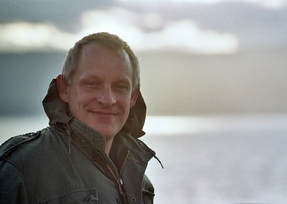 Ludwig Appeltans is a very well qualified and experienced permaculture teacher. I can personally attest he knows what he’s talking about. He runs the Earth Ways permaculture project, aiming to reconnect people, land and nature. Read more about Ludwig, and the Earth Ways organisation. If you enjoy this blog, and would like to help sustain it, please consider supporting it on Patreon. By pledging you become a more intimate member of The Mud Home and enjoy a number of perks.
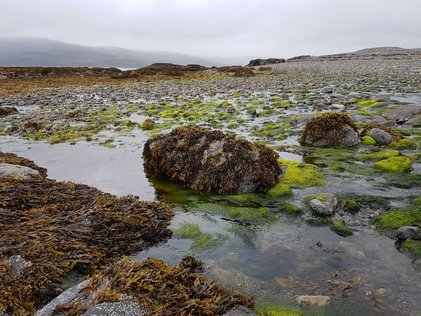 It was but a few days ago. I was huddled on a small boat tethered to a jetty on the Scottish island of Mull. The weather was amazing in its sogginess. Mostly it rained. And when it wasn’t raining another strange kind of element would descend. A freezing gloop that swallowed the mountains whole and turned skin into cold slime. It was well into the month of June, but I still had my woolly hat on. “Is this normal?” I asked the small lady next to me as we rose and sank with the waves. She chortled, and a few freckles disappeared into creases. “Oh I thought the weather was quite a good,” she said. I blinked and wondered what on Earth she could mean. Back in Turkey no one would have even got out of bed on a day like today, never mind stepped on a boat. Even if it was to see puffins. Oh the puffins! The puffins! But more about those in a moment. Now, you may at this juncture rightly be wondering what I’m doing in Scotland. Wasn’t I in Portugal? Well, yes. But the Atlantic has pulled me northwards. First it dragged me back to northern Spain, to Galicia, Asturias and Cantabria. From there I boarded a ferry to the UK. And then I drove further north again. What is this calling? I don’t know. Is it the Celts? Or is it the ocean itself, the fresh, cool smell of which bewitches me? While the Mediterranean is a cultured sea. A sea of trade, art and thought, the Atlantic feels ancient. Wild. Stuffed with seals, whales, and semi-crazed mariners with matted, white beards. It’s a mist-cloaked hide upon which a thousand myths are written. And in which a thousand spells have been cast. No wonder then that the puffins live here too. Squeezing myself out from my chair, I trotted up to the wheelhouse of our boat. The glass was spattered with drips, and through them I spied a grey speckled hump of rock approaching. I marveled at our group of weathered day-trippers, hoods pulled down, a platoon of multi-coloured Gore-Tex battling the elements. Giant telephoto lenses and binoculars swung from necks and shoulders. These were serious bird watchers and wildlife photographers. People on a mission. Now, it’s a rare day I’ll join a group. There has to be something very special out there to compel me to share a floating cupboard with thirty people... “Ladies and gents, here we are. Lunga of the Treshnish Islands.” Our skipper spoke with weary authority as he pulled into the beach. His first mate leapt ashore, rope in hand. “When you get o’ the boat, walk up the steps. We always recommend you carry on walking to the end o’ the path to see Harp Rock. But no one ever listens to us. They see the puffins, and become somehow hypnotised…Mesmerised…Puffinised...” I thought he was joking. Once off the boat, I picked my way over boulders, gaping at the landscape. Lunga was a mysterious, fog-shrouded place, stuffed full of barnacles and limpets. The rocks grew green hair. You slipped on it wherever you trod. One by one we stumbled and skidded over the shore. I stared at the pools of cold water beside me churning with brown vipers of seaweed. And I shivered. Single file, we all clambered up the muddy path. The sky drifted over us, and it began to pour with rain once again. There was some huffing and murmuring. Then suddenly we reached the top of the bluff. And we all became quiet. Silent in fact. There lining the precipice were rows and rows of orange and red patterned beaks. Some poked out of burrows. Others gripped grass or sand eels. The beaks turned toward us. They twittered excitedly. The puffins didn’t fly away. They weren’t bothered by us at all. On the contrary, I got the distinct impression they were rather pleased to see us. Many birds flew in from the sea, landing much as I might if I grew a couple of stumpy wings and hurled myself from a precipice. Others strutted to and fro like tiny waist-coated butlers. I fell onto the sopping ground. And just as the skipper had predicted I was mesmerised. Everyone was. No matter that the grass was soaking, the air freezing. No matter that our clothes were now streaked in mud. The puffins had us rapt. Eventually, I remembered the wise old skippers’ words about the Harp Rock. Up yonder. With a groan and a stomp, I tore myself from the puffin ledge and continued along the path. And that was when things turned sour. As I slid along the escarpment the talons of a black thought appeared through the wet air. They curled and clawed at me. Puffins are a vulnerable species. A terrible regret gripped my heart. We had to be disturbing these dear little birds. How could we not be? Just because they looked like they weren’t bothered by us, didn’t mean they weren’t. And after us, more damn tourists would follow. And more. Until... The further along the path I walked, the more upset I became. The talons scratched at my conscience. I hate humans, I thought. We are nothing but a bunch of selfish, destructive arseholes. Our curiosity is killing the puffins! We are wrecking their peace and quiet. Tramping all over their habitat. How could I have come here and participated in this? Suddenly, a cacophony of squawking drowned my thoughts. I had reached Harp Rock. There it jutted from the water like an enormous raptor’s tooth. But it was ablaze with so many birds as to be invisible. Kittiwakes, guillemots, razorbills, shags, and puffins all squawked and screeched and zipped about it. The air was a vapour of birds. A mighty wind shoved up the sheer cliff edges, and for a moment the rain backed off. As I stood gaping in amazement at this storm of winged bustle, I watched the puffins scuttling into their burrows. They were more timid here, with none of the comfortable prancing of the puffins back at the beginning. These were jumpy, alert. Eventually, I turned back. As I skidded along the oozing track, I wondered if this charming bird would survive us. Back at the main puffin ledge, just beneath another leaden belt of precipitation, I spotted Lunga’s warden. He was a young chap shrouded in a navy blue sou’wester, and was cheerily impervious to the never-ending rain. Sitting on the grass next to him, metres from the puffins, I spoke up. “Aren’t we disturbing them?” I said. “Do you think we should be up here?” The warden turned to me and grinned. “No. They like us.” I sighed somewhat exasperated. “How do you know that though?” “Well, every year the scientists come here. They stay for a month in huts over there and tag the birds. What they’ve noticed is that the breeding rate of these puffins on this ledge, the one where all the visitors come, is far higher than anywhere else on the island.” My mouth fell open. “Why?” “They don’ really know. But one guess is, it’s because we’re keepin’ predators away that would otherwise eat their chicks. So they feel safer.” I sat for a moment, a thousand light bulbs popping on in my brain. And I was once again reminded of my lizards on Mud Mountain. And the animals at Tamera. Because these puffins exhibited exactly the same relaxed behaviour. The same confidence. The same apparent will to interact with us, communicate with us. And it was, I kid not, at that moment that three puffins walked right up to me and began touching beaks. Another ruffled its feathers and jumped out of its burrow to watch. “Bottom line is they wouldn’t breed more if they were disturbed. S’far as I know, no puffin on this ledge has ever been harmed by a human, so maybe they’ve worked out we’re safe,” said the warden. “I’m the last out of here at night. When everyone’s gone, the puffins are no’ like this. They don’t hang around outside showin’ off. They’re either hidin’ in their burrows, or out at sea. And when they see the first boat of the day comin’ they all fly in from the water in a mad flurry. It’s really funny.” The young man chuckled and pulled his hood down a little as the rain drove in. “Do you think they’re acting up to us, to get us to stay?” “Could be. They’re really clever. But I think they’re also curious about us, like we are about them,” he concluded. A puffin began strutting in my direction, eyes on me. Then it turned and stopped next to a woman nearby. The small bird hung about her feet, rainbow beak twitching up and down, stepping closer and closer. And just like that the darkness lifted from my world. Because I realised the puffins saw us humans in a very different light than I did. And perhaps these charismatic little birds have a point. Though we may currently be in the grip of a dramatically destructive, self sabotaging psychology, humans are not actually congenital parasites. We have the capacity to be it all. To choose. To create not just our destinies, but our very selves. And when humans choose the role of guardian over exploiter, when they choose to connect with their environment on an emotional level rather than try to control it, when they opt for balance over greed, nature responds very fast. And it is wonderful to watch. Slowly I stood up. I could see our boat heaving over the teal waves toward the shore. And I walked towards it. Like everyone else, I was grinning from ear to ear, utterly puffinised. More Atlantic Puffin facts:
1. Atlantic puffins nearly always stay with the same mate for life. Both meet back at the same burrow year after year, and they share the egg incubation and hunting duties. 2. Some puffins don’t join in the mating game and stay single forever. You may or may not be surprised to learn these puffins live longer than the other mating puffins. 3. Puffins can be very old. Some reach over 30 years of age! 4. Atlantic puffins are quite capable of digging their own burrows, but if they find some other animal (rabbits for example) to do the heavy work for them, they’ll happily move in to these burrows and refurbish them instead. 5. Despite looking highly unaerodynamic, the puffin can fly up to 55 mph. It achieves these speeds by flapping its wings frantically (400 times per minute). I always enjoy your comments, so feel free to add them. 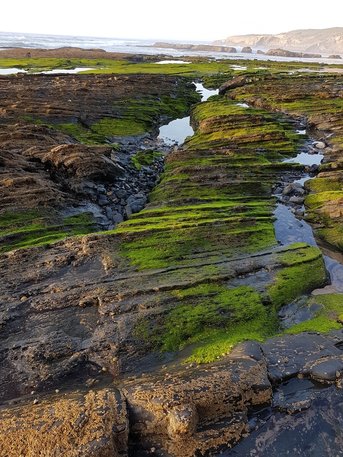 Portugal's Atlantic coast. Portugal's Atlantic coast. There is a special place down in Portugal that has achieved the impossible. A place that is making miracles and creating water (And let's face it, we could do with a few miracles, right now). That place is called Tamera. Last month, while on my four-wheeled odyssey of the Iberian Peninsula, I decided to pay Tamera a visit. As I drove the length of Portugal’s wave-thrashed coast, one thought appeared often. It winged its way along the sculpted rocks, skimmed the surf, and dove between the green rucks of the Atlantic. "What is life?" The force of life is baffling. How it comes into being. How it moves. Why it bothers. For us on planet Earth, life is inextricably linked to water. Oh and didn’t I know it as I chugged southwards? How many times would I peer up at my caravan’s water tank gauge to see that accursed arrow in the red? Pushing my van into 4th gear, I sped away from the sea and into the hills, to the region of Alentejo. Tamera was founded over forty years ago by a group of like-minded folk who bought up a large plot of land in southern Portugal and founded a small society. It is a solar-powered, sustainable world based on peace and love, and a few other things generally deemed utopic. In fact Tamera’s byline is “Realistic Utopia.” Now let’s be honest here, my dog has just died, I’m far from Mud Mountain, Turkey has become a dictatorship, the UK has just voted away my EU citizenship, and all over the Western world borders are slamming shut faster than a climate denier’s eyelids. The last thing I was feeling when I strolled into Tamera was optimism for world peace and love. My mission was to learn about water solutions. Having suffered for two years on Mud Mountain without water, I wanted to view first hand Tamera’s revolutionary water retention landscape. But Tamera has another way of speaking to you. One I hadn’t heard for a few months now. One I was badly missing. And I was reminded, the water solution – beautiful as it is – isn’t the ultimate solution. It was April, and as I wended my way through the rolling slopes of Alentejo, spring was everywhere. The hills were speckled with the white heads of rock roses, and I grinned at the telegraph poles. Each one was capped by a huge nest of twigs. They were fat straw hats in which a stork sat cosily, beak pointing outwards, waiting for her mate to bring her some food. Yet it was already a feisty 28 degrees, the sun coursing over the hills in hot golden rivers. I noticed many of the roadside springs were dry. Desertification is encroaching upon Portugal. And just as in most places, this is caused by a consortium of inappropriate agricultural techniques, deforestation and modern water (mis)management systems. Unfortunately for us all, most mainstream water engineers are still stuck in the 17th century; the universe is a machine, only instead of God we now pull the levers. They approach our planet’s water as if it were a plumbing system laid on for our convenience. Massive dams are constructed squandering huge amounts of concrete and thus energy. Ecosystems are destroyed in the process. The water table enters a state of severe imbalance. Droughts worsen. In the face of these disasters, the current engineering ‘solution’ is to repeat this insanity on a bigger scale, because apparently humans are still club-wielding numbskulls, knuckles dragging in the now waterless dust, and bigger is always better, right? And then there’s permaculture, which doesn’t see the planet as a machine, but as a dynamic ball of life... Tamera is permaculture in action. My van bumped along a dirt track. It twisted and turned spewing a haze of dust behind it. Suddenly I spotted it. Solar panels. A yurt or two. A strawbale structure. Two lakes. I had arrived. I slowed down, wound down my window and gawped at the water retention lakes. Yet what was most striking them wasn’t the lakes themselves, but the myriad of life that surrounded them. Grass, flowers, trees, saplings, shrubs, vegetables. It was an oasis of green vitality in an arid scrubland. How did they make the lakes? The lakes were designed by the Austrian agricultural rebel, Sepp Holzer. On the lower part of the land, two lakes were excavated. They were not sealed by concrete or any other type of artificial membrane, but banked by clay to stop the excess water running away in the rainier season. It’s important that the pools are lake-sized not pond-sized or the water evaporates (which is exactly why my bash at one on Mud Mountain failed). How do the lakes work? Water retention lakes are only ever effective when part of a water retention landscape. What’s that? It’s a landscape with no rainwater run-off, when each drop of rain sinks into the land, is taken up by plant life or the earth itself. Previously the Earth was covered in dense vegetation which allowed a precious humus to form. It is the humus that sucks up the water like a sponge before allowing it to slowly seep back into the ground. There are many aspects to a water retention landscape; terracing, lakes, holistic grazing management, swales and more. But it’s far beyond the scope of this post to explain each one. And seeing as the information is available online for free, and written by folk with far more experience than me, it would be a crass reinvention of the wheel. But for those wanting the details (or to argue the toss about why classic water management projects cause droughts), download Tamera’s detailed PDF. For the living proof, you can view the before and after photos on the Tamera website. In ten years the space has been entirely transformed. https://www.tamera.org/project-groups/autonomy-ecology/water/#c7366 But hold on there! The water solution isn’t actually the solution. Now I know people love to geek out on these types of solutions. But to obsess over the lakes and the swales, to focus only on the most obvious physical structures of Tamera’s landscape is to revert back to the dam-building engineer mentality. It’s missing the point. I'd go as far as to say, after my own experiences on Mud Mountain, without Tamera's founding principles, it wouldn't even work in the same way. Because, the Earth is not a machine, and it’s not something to be solved. It’s a responsive organism. What are those principles?
When I sat at one of the water retention lakes’ banks, it hit me. I hugged my knees under a pine tree watching dragonfly wings shimmer, butterflies flitting overhead, birds slipping so close they almost touched me. And I wept. I was suddenly back on Mud Mountain, in a space of beauty and love. Because this is how it was on my land too. When humans love the earth they live upon, when they truly see each part of the ecosystem as equal and valuable, when they build a non-violent relationship with it, something magical occurs. It’s alchemy. And nature becomes something else. Wild animals scuttle about with a relaxed confidence that is palpable. Flowers bloom. Trees bear fruit. And the ground oozes healing. It is this type of environment that makes anything possible. Life burgeons from deserts. Balance is restored in a matter of years. Miracles occur. Tamera’s water experts say they can create their scenario anywhere in the world. When you see Tamera, when you move away from a screen and live it, it’s obvious it can be done anywhere, though Tamerans would be the first to agree that the water retention lakes are the least of it. Who knows what life really is. But one thing is for sure, it thrives not only on water, but on connections, relationships and love. Oh how obvious this is when you've lost something you love! Everything responds to care, respect and attention; be it human, animal or plant. When human love and the love of the planet join forces, Edens are created. Spaces like Tamera show the structures of urbanity, with their conveniences and comforts for what they are: Barren, love-starved, polluted, ugly, noisy hell holes. After four months in what feels like exile from Mud Mountain, I simply cannot fathom how people stand it. It’s hideous. It’s banal. It’s soul-destroying. How could anyone live in that and not feel depressed? It’s a complete and utter excommunication. As the birds of Tamera chirped in delicious excitement of yet another day alive, I remembered what I had to do. I remembered what the point was. Because I’d lost it there for a moment. My space. The Earth. Eden. I must co-create it again. Because there's nothing else like it. 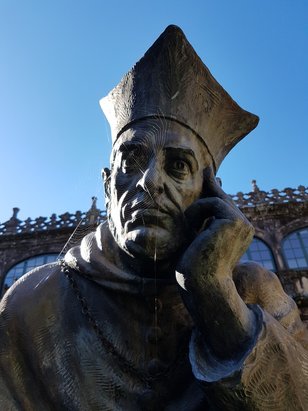 Dedicated to my dear friends Sue and David, without whom things would have been very different. They say you don’t know who your friends are until the chips are down. I’d say you don’t know who strangers are either. Or even an old friend you haven’t been in touch with for years. Or her husband whom you’ve never met. You don’t know who anyone is until the chips are down. “Hello lovely! Ooh look at you! And this is Rotty? Oh what a sweetie! Let’s get her settled upstairs first, and then we’ll come back down and fetch your things.” Sue hugged me so tight it made me laugh. Her dark hair fell over her jacket lapels. Brown boots clicked on the tarmac. There was a splash of Spanish flamboyance to Sue. She hadn’t changed a bit. “Are you sure it’s OK for her to be in your flat? We’ll be fine in the van if not. Really.” I looked at the horizon. The rain had cleared, but the sky remained swollen and dark on the outskirts of Santiago de Compostela. I inhaled the smell of eucalyptus from the forests around, while Rotty sniffed about the van, shoulders raised in two furry triangles, head lowered to the ground. “Oh yes! I’m hoping she’ll persuade David to get a dog too. I’d love a dog. I still miss my dad’s old Labrador, Sam.” And with that we all turned and made for the apartment block door. Two days later, the three of us we were huddled at the vets. It was a spotless establishment, with all the pet accoutrements of the first world. A dark-haired woman in a white coat walked quietly into the room, a thin slip of paper curling in her hand. She shook her head and began speaking. “She says Rotty has stage 4 renal failure,” Sue translated. “The leishmania has attacked her kidneys.” My old friend put her arm round me, her face drooping in glumness. Tears dug at the corners of my eyes. Leishmania requires an aggressive chemotherapy type treatment which is horrible to administer. Rotty’s kidneys were shot to bits. We were on the road, and she couldn’t travel. “But...but last time it was worse than this, and she survived!” I said. “She went down to 14 kg.” When the vet received the translation, she stared at Rotty hard. “It’s unbelievable. It was a miracle then,” the woman said, shaking her head gravely. She was right. The events of last summer had been a miracle. And now I believed in them. As we walked back to my van, Sue held my arm again. “Don’t worry. You can stay with us until this is sorted out.” “Sue, I came for a day or two. This could take weeks!” “My dad has a flat on the coast. If it comes to it, you can go there. But for now you need to be here near the vet. I don’t think David will mind.” Would he have said if he did? Because David was a nice guy. Seriously. Thus began two dramatically upsetting, powerful, exhausting, heart-warming, shocking and amazing weeks. It was as if the universe threw everything into the drum of that fortnight, from best to worst, and span it at 1000 rpm. I don’t think I’ll ever forget it. Now I don’t normally put too much stock on human beings. We’re a fickle, callous bunch at the best of times. But over the next two weeks, my faith in human nature was steadily reconstructed from the bottom up. It can’t be easy to house a grieving person plus their dying dog in your attic flat after all. Yet somehow we all got on. It was like our North London flat share all over again. Sue was the working girl, so she was out most of the day educating the Galician youth in the tongue of the Angles. When she wasn’t at work, she could usually be found in the living room, surrounded by towers of files and text books. Every now and again, her head would rise out of the nest of paperwork. “Ooh I don’t know why I always seem to be surrounded by work!” She’d wail before sinking below the marking again. David was a quiet, meditative chap, which was fortunate, because there wasn’t too much room left in the conversation once Sue and I bit into it. He taught taekwondo in the evenings, and that left us both at home in the day times. Often we’d meet for lunch and have a chat over a nice glass of Alburino. “He won’t tell you himself, so I shall have to. You know he was the Galician taekwondo champion four years in a row,” Sue said one night at dinner. David grinned rather coyly, and slid his spoon toward the pan of homemade aloo gobhi on the table. “He also studied the Camino de Santiago for his thesis. Many strings to his bow, this one.” “Oh I’d like to do that one day.” “Well, let me tell you, once people walk that road, it seems to hook them. They just keep coming back to do it again and again. Or different bits of it. It never leaves them.” Sue munched contentedly on some rice. “There are many roads. Many Caminos,” David murmured mysteriously. He placed his fork carefully next to his plate. “Tell me more,” I said and reached for my wine glass. “When did the Camino thing start?” David stood up and piled our plates on top of each other. He spoke slowly and deliberately. “They think it was a Pagan way. May be it was the path to the sun. Because the ending, it is in Finisterre.” “The most westerly point in mainland Europe,” Sue clarified, pushing her plate away. “So it’s like Christmas and Easter. They slapped a Christian ritual onto a pagan one.” I chortled and banged my wine glass onto the table. “You know how it is. Made it easier for the locals to swallow that way.” Sue grinned. Abruptly she turned around. “Oh flower! Come here my little perrita, how are you?” Rotty wandered into the kitchen and visited each of us in turn, tail wagging. Then she flopped onto the floor by the table. We all looked at her. I suppose it was obvious. But because she’d returned from the brink before, I just didn’t believe it. Ten days after I arrived at Sue and David’s, Rotty...well...what actually happened to Rotty? What happens to any of us? It is life’s most important mystery.
We are not often honoured enough to watch a good death from start to finish. Human deaths are all too often closeted in old people’s homes, knotted up amidst wires and catheters in emergency wards, or ripped to pieces by violence. And this is tragic because when life evacuates a body, a profound power is released. I witnessed that power. In a dog. It was the small hours. The witching hours. The hours all supernatural things occur. From somewhere within the thick of sleep, I sensed someone staring at me. Heaving my eyelids up, I vaguely made out Rotty, nose almost touching mine, gawping unblinkingly at me. I reached for the light, and sensed my dog wanted me to move next to her, which in itself was unusual, because she hated sleeping next to me normally. So I laid beside her, head on her cushion, stroking her ears. Her features relaxed. Then for a full hour she stared at me so intensely I thought she was reading my soul. Rotty was standing at the gate of the mystery. And she knew. Yet here is the thing. The vet had already told me Rotty’s hemoglobin count was so low she would die any time. She couldn’t understand how my dog could still walk, or poop outside, or indeed do anything. But my dog was walking. She had walked out of the vet that very afternoon, head forward, eyes focused with the determination of a marathon runner. Groaning, I heard Rotty pulling herself onto her legs. She began pacing the room, claws clipping on the parquet flooring like a deranged tap dancer. “She needs to pee,” I thought. So I hauled myself up and opened the door. It was barely six am, and the air outside was still inked out with night. Rotty sniffed the darkness, as though she were smelling the stars. Finally she peed, then turned to walk back to the car park. It was here she ran out of steam and slumped onto the tarmac. Bending down, I scooped her up into my arms feeling as sorry as a dog owner can. Minutes later we were back inside the apartment. I placed my Rotty gently down on her bed. And then it happened. Suddenly her body heaved. I gaped aghast as she took a three or four rasping breaths. I don’t really know what I saw leave Rotty in the moments after her last breath. But something did. Her essence drained out of her. And yes consciousness leaves gradually, it’s not an on/off-switch affair. You could see it pulling out of the cells. Then at some point, the body that was previously animated, became a piece of meat. No Rotty. No life. No awareness. Just a carcass. I’m still left clueless about it. What was it that left? And where did it go? Can something that powerful, an energy that vibrant, suddenly vanish into thin air? It certainly didn’t feel like it vanished. Because the air in the room was full for a good two hours. But what with? Now there are all types of words and definitions and theories you can slot into the gaps here, religious, scientific or otherwise. But when you witness it, if you are honest, you are left simply not knowing. What a mystery death is. What a strange and uncharted land. An unknown laced with signs and meanings, stirred by the hand of fate. My dog made it to Santiago to Compostela and died, her pilgrimage apparently complete. Yet it brought to light how incomplete mine was. I watched something leave my dog’s body, but I didn’t know what it was. Her light perhaps? The light we all carry along the Camino of life. But what is it? What are we? What is that essence that holds the rest of our being together? Because if we don’t know this, and we don’t even bother to research it, then what the hell are we doing? Ah Santiago de Compostela, city of spirit, how kind you were to me in my hour of darkness. Every single one of your inhabitants, from the vets, to the crematorium, to the random acupuncturist we phoned to obtain herbs, to my dear friends Sue and David...each rose to the occasion. Every single one did their level best, and then a bit more. Compassion and integrity stole through your alleyways, both medieval and modern. You hummed with them. For a month I couldn’t leave. I drove round the Coast of Death, to the most westerly point of mainland Europe. The rocks roared with messages. The sea foamed and churned in time, before I circled back to Santiago. I walked the Camino too, and saw spirits, ghosts and more. The light of millions of human pilgrims seeped into me, until I rediscovered my own. Eventually it was time to leave. To reach into another place. Portugal stretched in front of me like a golden finger of promise. Yet as my van crossed the border and the soft green slopes of Galicia slid into the rear view, something told me I was coming back. 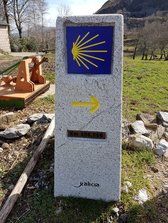 I first saw a sign for the Camino de Santiago somewhere just past Biarritz; a bunch of yellow spikes jutting out in the shape of a scallop. I didn’t know about scallops back then. In fact I didn’t know much about the Camino other than what I could dredge up from my 20 year old memories of Paolo Coelho’s Pilgrimage. The Pilgrimage wasn’t to be the only throwback from the late 1990s, though. Because before long other 20-year-old ghosts would start calling to me. Was there a loop in time somewhere? A kink in the ribbon of my history? None of this was apparent back in January though. Rotty and I sat, noses pressed to the windscreen of the van as it hugged the curve of the Atlantic. And at some indeterminable point on the A63, road signs switched from French to Spanish. I grinned at the quirky entity that is Europe. Love it or hate it, (and I love it) there is something incredible about the multitude of carefully preserved cultures, languages and histories squashed into this gnarled shoebox of a continent. It is a rich place, Europe; the wines, the cheeses, the roads throbbing with intermingling stories... Now, back in France I’d planned to head south from here. To plough on down to Valencia for some winter sun for my chilled old bones. But something happened just past San Sebastian. Was it the the magnetism of the sun’s own path? Or was it the call of the Atlantic? I don’t know. All I know is we were pulled westwards. And westwards we drove. Thus the north coast of Spain spread before us like deep green tapestry. Oh what roads we traced Rotty and I! They were asphalt cords tying together a breath-taking landscape of grassy slopes, stone villages and a writhing coastlines. The tyres of the van whirred from the misty lakes of the Basque country to the pea green fields and rocky inlets of Cantabria. Many a morning I’d let Rotty out for a pee, only to find a mountain path so beguiling, we’d end up walking it for two hours before my stomach barked at me to go back and eat breakfast. I didn’t quite get it then, because I didn’t really know where the Camino was, but as we drove down the north coast of Spain, Rotty and I began to trace what is known as the Camino Del Norte. Yes. There’s not just one Camino, as I was about to learn, but a network. A mesh of paths all leading to one rather mysterious place: Santiago de Compostela. It was amidst the towering peaks of the Picos de Europas that life began to slide back on itself. Sitting in my van, gaping at the huge shards of rock that cleaved apart the landscape, I recalled an old friend of mine called Sue. I hadn’t seen her since – you guessed it – the 1990s. We’d shared a flat together in North London back when we were newly qualified languages teachers, and when NQTs could actually afford to share a flat in N1, albeit a submerged rabbit hutch. Twenty years ago, around the same time I moved to Turkey, Sue had moved to Spain. I knew it was somewhere in the north. I thought it might have been Galicia. We hadn’t spoken for years. She had no idea about my blog or my books. No idea that I had up and left Turkey. I searched my email contacts and found an dubious looking address from ages ago. Shrugging, I flung an email far into cyberspace, not really expecting much to come of it. So when a mail pinged back into my inbox a few hours later, I blinked in surprise. “YES,YES,YES Of course I would LOVE to see you. It would make my year! We live 4 kms from Santiago de Compostela... I would never forgive you if you were in this part of the world and we never met up!!!!” Something inside me exploded when I read the mail. Was it a rush of past affection? Was it the capital letters (because Sue most certainly does speak in capitals, large bold letters littered with plenty of exciting punctuation and warm hugs)? Or was it, as another angel put it later on, the needle on the compass in my heart swinging to show the way? For no apparent reason I began to feel very excited about meeting up with Sue. I was sure she held a gift for me. I thought she might lead me to a magical plot of land, or something. I was wrong. A few days later, Rotty shuffled over to her self-appointed post at the passenger window. I hugged the steering wheel. And we ploughed on westward, still pulled by something I didn’t quite understand. Though now at least we seemed to have a goal: Santiago. The region of Asturias slid into the rear view mirror along with its massive peaks and lakes in the sky. Unknowingly, we were also still tracing the Camino Del Norte, a pair of pilgrims, six legs and four wheels between us. But on pilgrimage to what? We chugged into Galicia. It was a coastline which was half Cornish, half Scottish. A mythical littoral of coves and slippery crags. I wouldn’t have been in the least surprised to see Merlin standing on one of the barnacle-encrusted rocks, waving to me. Then something wasn’t right. Rotty was tired. Didn’t want to walk. Began to pick at her food. I upped her meds. The night before we turned onto the highway for Santiago, her nose leaked a little blood. And I knew the parasite of leishmania was trying to make a comeback, though I wasn’t unduly worried. We were heading for the city of Santiago the next day. Somewhere with a vet. And a place to stay. Pulling up in front of a beach, I watched the copper disc of the sun dropping into the frothy folds of the Atlantic. I thought it was a good place to overnight. There was even a tap. Rotty and I leaped out of the van and made for the sea shore. Shiny black rocks lined the cove. I found a hollow in them with a small tree growing over it, roots trailing. Reclining in the hollow, I watched Rotty sitting on the sand staring at the horizon like some wise old sea captain. The rock held me. I felt the Earth’s hands on my shoulders. Her breath on my cheek. Galicia was speaking to me.
The next morning, as I typed Sue’s address into my Sat Nav, I glanced at Rotty. Her nose was clear. And I sighed with relief. I shut up the van, closed all the cupboards, packed all the stray food into the fridge, and filled up with water from the municipal tap. Then I turned the key in the ignition and pulled onto the highway, to Santiago de Compostela. 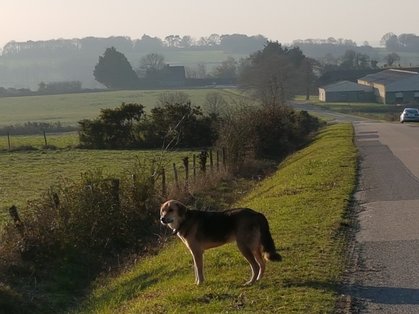 For years I refused to have a dog because I assumed it would tie me down. Trap me. Limit my freedom. Then I fell in love with Mud Mountain and my ardour for the road evaporated. “Might as well have a dog,” I said, “I’ll be here at least ten years.” Ha! How unpredictable the autoroutes of fate. How quickly they twist from the expected to the unimaginable. My dog was never a tie. She was an inspiration. ********************** Late January As we pulled out of the port town of Saint Malo, happily hugging the right-hand lane again, the horizon blushed pink. Dawn filled the French sky with strawberry dreams. Beside me on the passenger seat, the crusty heads of a baguette and a tarte aux pommes poked out of paper bags. My co-pilot Rotty ignored them. She had more important things on her mind. Her nose was pressed against the passenger window drawing translucent streaks onto the glass. I glanced at the back of my dog’s head, the fur running in perfect rivulets between her ears, and I marvelled at it all. Because do you know what? If truth be known, I’ve never really liked motorhomes. Too cramped. Too modern. Too technological for a mud witch like me. Formica worktops and vanilla décor. All this squeezing past this to get to that. No. It’s never appealed. I’ve always travelled light, with a rucksack. Free as a bird flitting from this place to that. There is only one reason I am motoring round Europe rather than backpacking. Only one place the idea actually emerged from. My dog. Last year, as my journey across Europe dragged itself out of the fog of dreams and into the forecourt of a plan, I realised I needed an automobile of some description. Planes are stressful for animals. Coaches generally won’t carry them. Many guesthouses don’t accept dogs, and if they do you pay extra for the privilege. One idea led to another. My mind took the clay form of a car into its synaptic hands and molded it into a van. The van grew bigger, higher, and eventually became a small motorhome. I watched the advantages of a home on wheels stack up: Accommodation is pricey in Europe. It was an inexpensive way to live and simultaneously travel. Now at last here we were, driving en France, stone farmhouses rolling across verdant croplands. orchards and cobbled villages flicking by like something snipped straight out of Jean de Florette. I gasped as the pastures of Brittany parted for us. The sun scudded into the sky, gilding the fields and the leafless trees. Foot pressing lightly on the gas pedal, I wallowed in the singular contentment one feels when faced with an empty highway and fantastic weather. Ah c’est belle la France, quoi? The autoroute signs flashed overhead; Rennes, Nantes, La Roche sur Yon. The days flashed by likewise. Sometimes my Sat Nav knew the way. Sometimes it didn’t. Whenever I got lost, I would stop at a patisserie to ask directions, while stocking up on croissants and Paris Brest. But it was cold, and our holy grail was warmer weather. Thus we chugged on, past Rochefort, Bordeaux, and through the forests of Gascogne. We overnighted in campsites with frozen water pipes, in muncipal car parks, at the edges of icy lakes decked with mallards and herons. It was an adventure. And I loved it. As we motored toward the Atlantic coast, my heart brimmed with happiness. I thanked my dog; for the company, for the home on wheels, and for setting me free. She was my constant in a year of upheaval. The being I spent most time with, day in, day out. The love she inspired within me, amazed me. We understood each other better, and spent more quality time together than a good many couples. For there are no words with an animal, no lies and few expectations, only patient observation. And an unwavering by-your-sideness that is arresting. Pulling into Mimizan, I parked by the seafront and inhaled the strange cerulean of the Atlantic. Surf shops littered the coastline. Barnacles and mussels gripped the black backs of the rocks. Suicidal waves hurled themselves at the shore, splattering into a lather. Rotty pushed her ears back and ran into the freezing wind. She rolled on the frost-coated sand, while the tide of destiny pulsed. Yes, little did I know that late January morning, but a dark seed had germinated within my dog. Little did I know, her kidneys were weak, the Leishmania parasite poised. Little did I know within three weeks I’d be cradling her in my arms as she took her last, rasping breaths.
As I sit here in the future crawling through the darkness, gone are the pink skies of France. Gone are the golden hills and the holy grails. Now, the only thing I can see is my ignorance. If there is a road to be travelled it evades me. If there is a map, it’s out of date. For the Sat Nav of life has sent me somewhere I don’t want to be, to a place without light or sign posts, where platitudes are chewed on by the wolves of grief, and advice flails as uselessly as a paper sword. I am lost. Do I stop here? Reverse? Abandon the wheels and walk? I don’t know. And neither does anyone else. Except perhaps time. 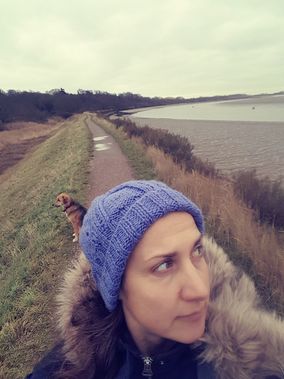 There is a pool just before a waterfall. Clear. Still. With no waves to churn trouble. No silt to be stirred. The water circles slowly there, unaware of the cascading chaos metres away. This pool is the known. The understood. The mastered and attained. And yet inevitably streams of life are pulled away. It’s their nature to move. So they flow, the light carving new lines upon them, until they reach the precipice of their destinies. Momentum gathers. Water banks up against the ledge. It presses forward in desperation before, in one sickening lurch, the edge is breached. Gravity yanks the stream asunder, sending it crashing into the Unknown below. Does the water quiver just a little, the moment it plunges over the ledge? Does it tremble once past the point of no return? I wonder. *** “Do you think you’ll be alright driving a large vehicle in England? It’s the other side of the road, you know.” “I’ll be fine. I’ve driven a rickshaw in Jaipur, for Pete’s sake. What can go wrong?” Oh how sure of myself I was back in Turkey when people had asked. Now here I was, a few thousand kilometres north, freezing fog lacing the roads in smoky clumps, sitting behind the ample wheel of my new van, which wasn’t actually a van at all, but a truck – a mini white-boxed motorhome. And I was terrified. Because I was a Turkish fish out of water. Roads in rural Turkey are blissful affairs; long fat belts of tarmac cruising over the steppes with no more than a handful of motorists cruising along them. You can drive for hours, wind in your hair, not a tailback in sight feeling like the smug protagonist of a Volvo commercial. But Turkey was far away from here. I was now in south east England. Certainly England has many things going for it, unfortunately the road system isn’t one of them. The country has strangled itself within a skein of tarmacked lines. Driving isn’t leisure, it’s serious, slow moving drudge. And the roads are very thin aren’t they? Skinny, winding cords of worriment with too many parked cars clogging up the left hand lane. I’d erroneously found my way onto such a conduit now. I should have been on the B somethingsomethingsomething, but I’d taken a wrong turning. Thus I found myself threading through rural Essex on the tiniest of lanes, muddy ditches leering at me from the edges of the asphalt. The sky was a smudge. Grey and soggy. It filled the windscreen in ill-defined splodges. Brambles scraped the side of the van like talons on a blackboard. I puttered along the road chewing my bottom lip, guts knotted into a macramé of offal. So many worries crowded my headspace, I didn’t dare blink. I was staring so hard into the wing mirrors I had a headache. And then I braked. Because directly in front of me, rising out of the road like a luminous yellow ghoul was a skeleton of metal rods bound in health and safety tape. I peered down from my cab. There, occupying half of the lane, was a freshly excavated crater. Great. Just fantastic. My every muscle tautened. Could I squeeze past the hole? I had to. I couldn’t reverse as I was on a sharp bend with those ditches on either side. Muttering a quiet prayer, I pressed the accelerator, trying my best not to think about would happen if my right wheel dropped into the hole. And just when I thought it couldn’t get any worse, a Range Rover appeared from the other direction. It faced me off, all black and brawny, the heavy tread of the tyres visible through my windscreen. It was then I felt the distinct urge to pull up the hand brake, stick my hands in the air and bawl. How strange life is! How relative. I’ve spent the past five years dealing with snakes, bulldozers, forest fires, wild boar, and maniac hunters blithely firing shots over my head. I thought my days of heart-clutching terror were over. This is Europe after all. Safe and sound. Yet in truth it is not danger we are afraid of. No. For danger is everywhere. In the food we eat, the air we breathe. Every time we cross the road. What we really fear is the Unknown. The not yet understood, nor mastered. As it happened, the Range Rover slowed. To my surprise, it reversed a fair way back to the main road, and allowed me to pass. But as I pulled away and onto another traffic filled B road, an undertow of terror still dragged at my nerves. That night I had a nightmare. In it, I filled my van with all my friends from Turkey, drove it into a tunnel and scraped the left-hand side clean off. The left-hand light was still dangling from its socket in my mind’s eye when I awoke. Whimpering, I grabbed at my duvet, just to check I was in bed. The next morning I walked to the front room and pulled back the curtains. There was my truck towering over the drive. And I felt sick to the depths just to look at it. How could I ever have considered buying this monstrosity and driving through Europe in it? How? I slapped my hand against my forehead and fumed. Where had this trepidation skulked all those hours I’d scoured the campervan section of ebay? How had it remained silent as I dragged my dad round to various corners of south east England to find my van? Where had it been when I bought the thing? I was like the water in the pool, oblivious until the point of no return. There was nothing to be done. I had the van. So I had to drive it. Pulling my guts together, I resolved to get behind the wheel every day until I was no longer scared. For three days, my dad sat stoically in the passenger seat and transformed himself into a human Sat Nav. I tackled roundabouts, weaved along narrow streets full of parked cars, negotiated great armies of bollards (Britain seems to breed them). The dimensions of the van began to feel normal, while sitting in an ordinary car felt like being squashed. Soon enough, as is the case in every new event in our lives, the territory of the Unknown was pulled under my wheels. And as I rolled over it, I absorbed it, integrated it, until it became me. And I became something new. Namely White Van Woman. In reality, the potential danger remained the same. But the Unknown was now known. Why we are so mortally afraid of this Unknown, I have still to work out. Our fear makes no sense. It stunts our growth, reduces our capacity to adapt and thus our ability to survive and thrive. Yet this fear is everywhere; in the laments of those who want to return to bygone eras, in the repetitive blaming and suspicion of foreigners (foreigner = Unknown), in the resistance to the learning of a new skill, or the moving to a new place. When most people say they can’t go for a dream and cite any number of reasons, it is usually fear that is speaking. ***
What happens to the water in the pool after it plunges thousands of feet below? It bubbles and moils, pummelled by the force of the fall. But after that, it gathers itself and moves forward. If the water had eyes it would see, it now flows down a wider, brisker river, decorated with exotic new landscapes and plenty of oxygen. If it had a head it might think it was a good job it didn’t remain all its days in the pool. Because there’s so much to experience, and so little to lose. Soon enough, I itched for the road. A solar panel was attached to my van. I bought a ferry ticket from Portsmouth to St Malo in France and packed the cupboards to the brim with what was left of my belongings. Then I opened the door and my dog climbed in. Finally, I pressed the accelerator. 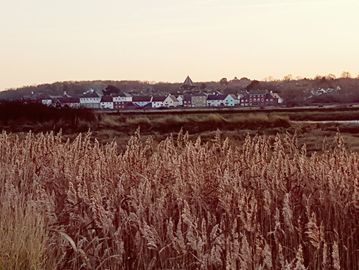 Looking out from Wivenhoe. Looking out from Wivenhoe. “I don’t know, I’m not certain you’ll be able to get the exact van you want in the time you specify.” My dad was pulling flakes of bass on to his fork. The Mediterranean was lapping opposite us, a pool of treacle in the warm autumn night. “Yes of course I will! Just think positive. It will happen.” Dad munched on the fish, expressionless. “But how will you convert it? And live in it?” “How hard can it be? I’ll stick a small wood burner in it, and a sink. That’s all I need. I’ve seen it on Youtube.” My long-suffering dad placed his fork heavily onto the tablecloth and picked up his beer glass. I just knew what he was thinking. You’ll be staying in my house until you finish this project, won’t you? That had been October. But since that balmy evening in Adrasan bay, much had changed. *** On November 8th, Rotty and I flew from Turkey to Amsterdam, then boarded a train to the Hook of Holland, and finally we crossed a steely North Sea via a Stenaline ferry. My dad picked us up from Harwich on the cold, dark night of November 10th, a night pulled out of a tale. The wind buffeted the car as it roared round the back lanes of Essex, hedgerows swaying wildly. Here I was at last. In the UK. As Dad predicted, I camped in his spare room, belongings salvaged from Turkey piled up in the corners. From my bed, I could see the blue weave of my Anatolian rug spilling out of a suitcase. My dog was curled up in the front room, my jigsaw was stored in the back. Yes. It’s not easy to be a parent sometimes. Children never grow up. For the next week I relished the central heating from my perch on the sofa, laptop open, scouring the virtual forecourts of Ebay, desperately searching for a van. I hummed and hawed, until my dad lowered his newspaper. “I think you need to speak to Ian,” he said. Ian ran the local garage. So it was one morning, I bumbled down to the Wivenhoe garage, sheaths of Ebay printouts in hand. Opening the door, I was greeted by a small office characteristically decorated with MOT sheets, mugs of tea, and clumps of car keys skulking in niches like silver jagged-legged insects. Soon Ian appeared from a door out back wearing a blue boiler-suit and looking suitably mechanic-like. I thrust my A4 winnings under his nose. Now, what I didn’t realise then was that there is a secret society of campervan enthusiasts strewn the width and breadth of the British Isles. These vansters come in all sorts of unexpected shapes and sizes; anglers, golfers, consultants, pensioners, writers, artists, surfers to name but a few. If you’re really lucky you’ll meet one who is a mechanic. “Hmm...” Ian peered through his glasses at my paper offerings. “Nope. Nope. Nope.” The white sheets hit the worktop in a flurry of clear-cut rejection. Another mechanic appeared, also boiler-suited. He glanced over Ian’s shoulder. “Urgh Ford Transit,” he said, and shook his head. “What’s wrong with them?” I began to gather up the papers, holding them to my chest. “Van conversions...” Ian’s face was deadpan. He let out a long, experienced sigh. “Looks like a great idea, dunnit? But what you’ve gotta remember is..." and he paused here to sigh again. "...White Van Man’s been driving these full pelt round the country for a decade. You need somethin’ with less than 80 000 on the clock. At least then you know it’s got a bit of life in it.” “Oh. Well yes, I’m going to travel Europe in it, so I don’t want it to conk out on me.” Ian looked me up and down very dubiously. “‘Ow much you lookin’ to spend?” “£3000.” There was a sucking in of breath, followed by various protracted facial movements. Cheeks inflated and deflated. Finally the verdict came. “Well, it is what it is, innit?" Another sigh. "It is what it is.” Standing there in the garage office, I clutched at my vision, albeit a little forlornly. I had to find something cheap, because I didn’t want to throw all my money into a vehicle. I needed land. That was my first priority. “Why don’t you have a look round my van. I’ll show you what to check for before you buy one. It’s out back.” Ian nodded at the door. Outside, the air was a cold, wet glue that stuck to everything. Even the concrete forecourt seemed to secrete it. As we walked through the grey, I shivered and dug my head lower into my coat. At the back of the garage, Ian’s camper was parked. It was an enormous cartouche of wheeled, sheeny splendour. A proper motorhome. Opening the door, I stepped into the carpeted, closeted opulence of the vehicle. It was more comfort than I’d seen in five years. Ian was in the secret society. In style. “How much did this cost?” I asked blinking. Because this was a house not a van. “More than £3000,” he said and chuckled. “But these things don’t lose their value like vans.” That comment slid over me. But fragments of it must have come loose and adhered to my skin, waiting for the right time. In the coming month, I made countless trips to the Wivenhoe garage armed with an ever increasingly perfected wad of printouts. Ian said “It is what it is,” quite a lot. Every now and again, one or two of my choices were deemed ‘worth a look’. My dad drove me all over south east England chasing these van leads. We endured a loose-lipped caravan dealer in Epping, I reversed a camper for the first time in a Norfolk farm, Dad jump-started a van in Ipswich, I drove a motorhome round a doctor’s car park in Saxmundham. But there was always something not quite right. I just didn’t get 'that' feeling. The reason none of them worked for me, was because I’d already been smitten. I’d seen a van the first week I’d arrived in England, because it was parked rather auspiciously opposite my dad’s house. (Ain't that always the way?) “I heard they want to get rid of that,” Dad had said. This information had reached him via the well-greased cables of Wivenhoe’s grapevine. The van had been parked in the drive of a beautiful 17th century cottage. I had knocked on the door, and a friendly lady had appeared. “Yes, we are thinking of selling it, but haven’t got round to putting it on the market yet,” she had said, before disappearing to find her key. Soon I was inside the van. I sat on the plush sofa exhaling happily. It was perfect. Spacious, clean, and beautiful. Not too big, not too cramped. A dream van. Just right for me and Rotty. But it was over budget. Way over. So I had there and then pushed it over the periphery of my quest. Motorhomes don’t lose their value like vans. Eventually, the motes of that comment collected and congealed into an idea. Because if this mini motorhome wasn’t going lose too much of its value, perhaps it was worth investing in. If nothing else, it would stop me from spending everything I had. So it was in mid-December, I bought the very van that was parked opposite my Dad's house. Ian said "It is what it is," again, before charging the battery and driving it to the garage. I cleaned it courtesy of the Wivenhoe garage's brush, and spent a fair while hunched over the manual trying to comprehend the geekery of the gadgets. The convenience amazed me. There was an oven, a sink, a toilet. Even hot water, something I hadn’t known for five years. Before Christmas it was taxed, insured and ready to go. All I had to do was drive it... Many many thanks to my dear dad, without whom this would all have been so much more difficult, and of course to Ian at the garage for sharing his wisdom.
Earth,
You are deep, Rippling with stories. His, Hers and Ours. I roll over your surface, And you speak. Wherever I am, Whoever I’m with, You are there Underfoot. In my lungs. In my hair. My mud home. Not one square of you. All of you. Everywhere. The Soil, The Water, The Forest, Steppe and Plain. Enchanted planet, you are open to me, Whispering your secrets And I glide along your veins. Sky You are deep. Expanding with ideas. From above and beyond. As I travel beneath you. You inspire. Wherever I am. However I live. You are here. Overhead. In my eyes. In my ears. The road winds on, Over you. Under you. It is a flow born of you both; Earth and Sky. Life energy, Restless. Within me. Ever onward. The journey is unstoppable Pushing forever forward, Spilling me, Over my edges. Toward... |
Atulya K BinghamAuthor and Natural Builder. Many thanks to the patrons sustaining this site on Patreon.
Dirt Witch is now out in ebook and paperback.
"This is such a compelling book. It will make you want to abandon everything you know, move to the forest and commune with the trees and earth." Luisa Lyons, actor, writer and musician.
"Inspiring and beautifully written."
The Owner Builder Magazine. Archives
May 2018
Categories
All
|

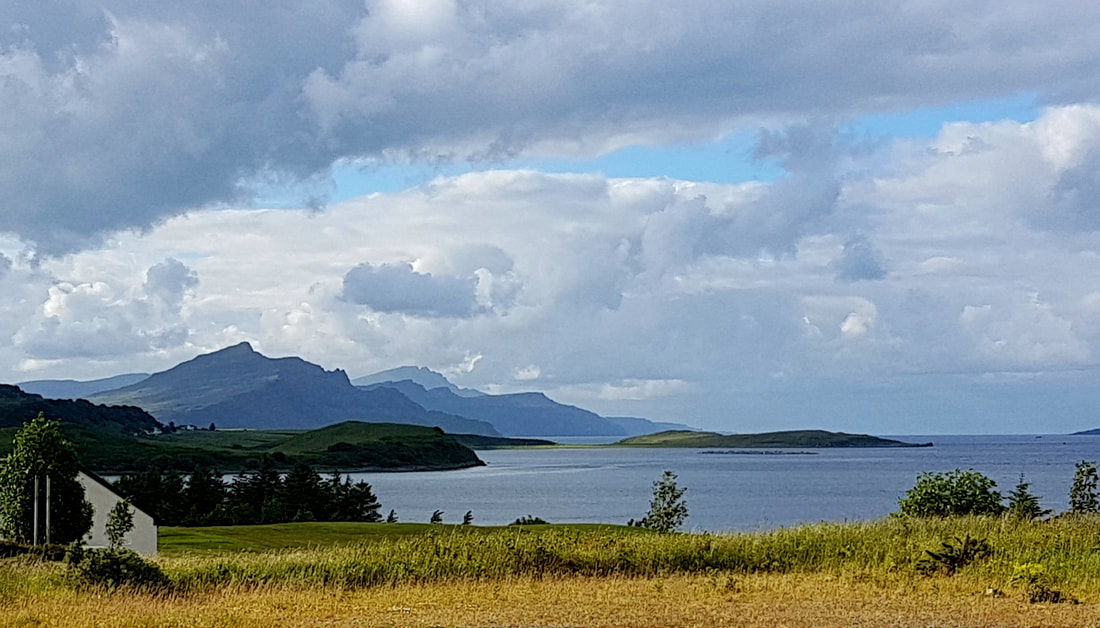
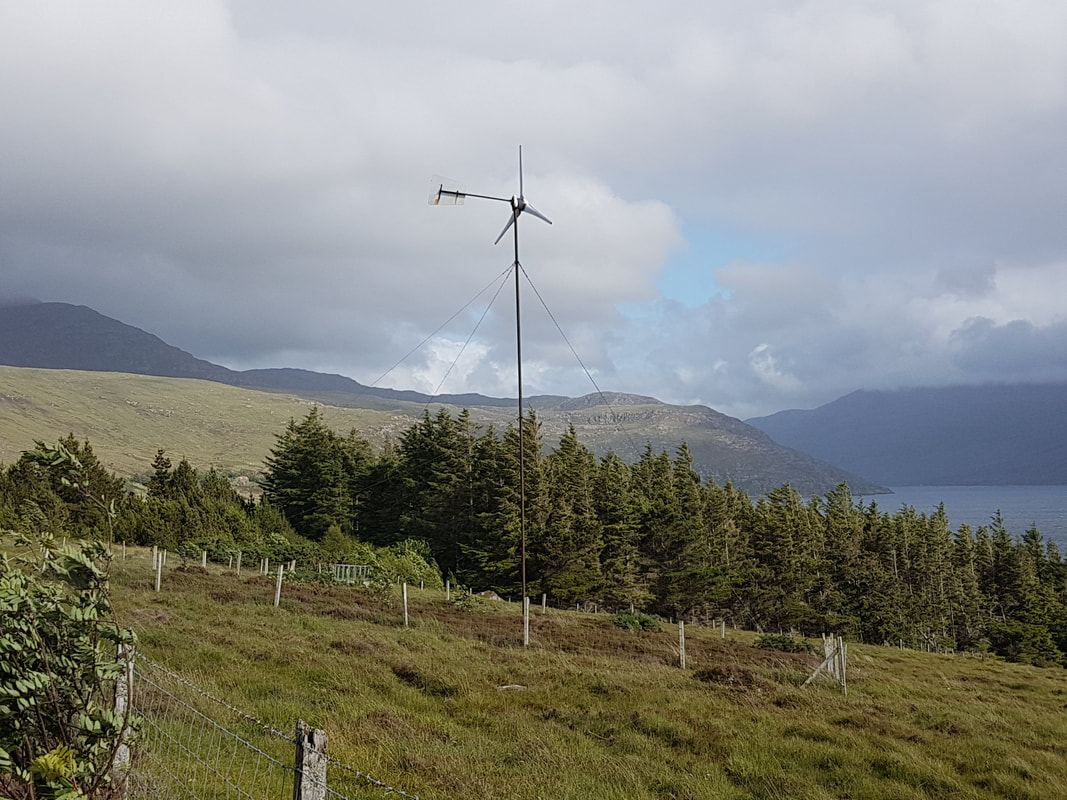
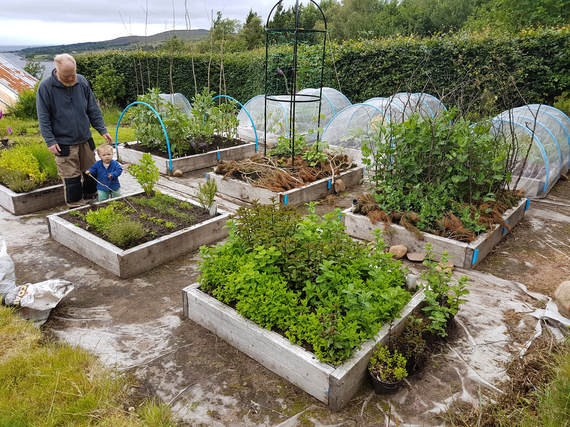
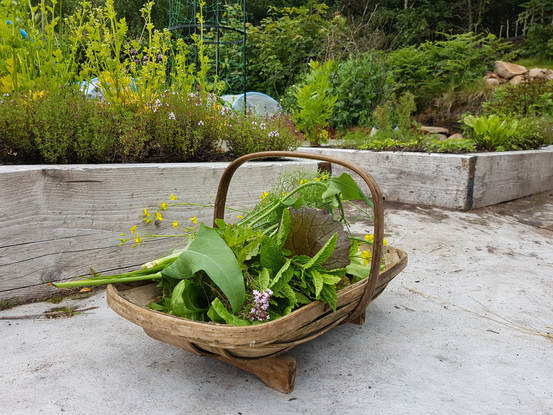
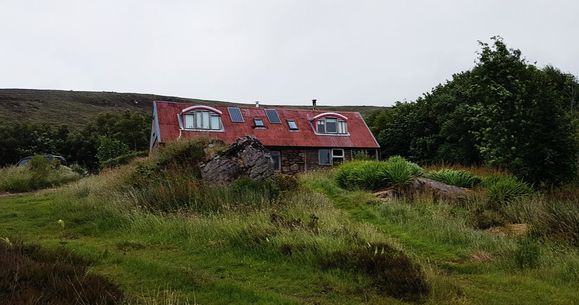

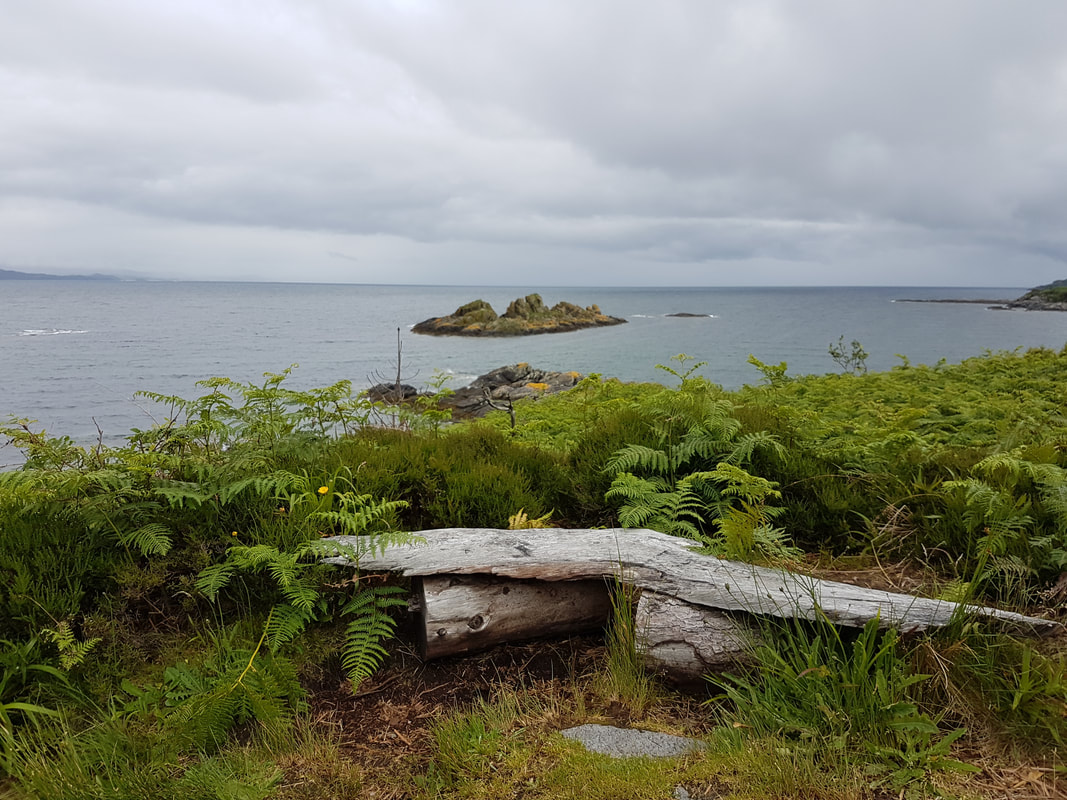
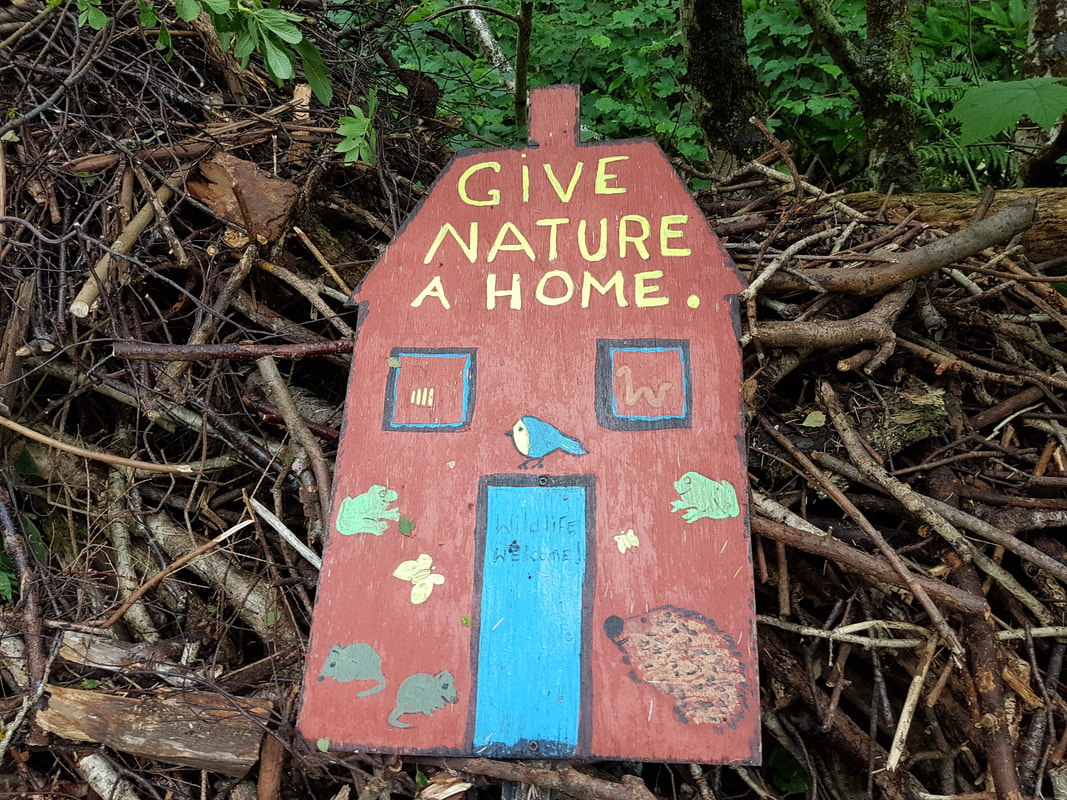
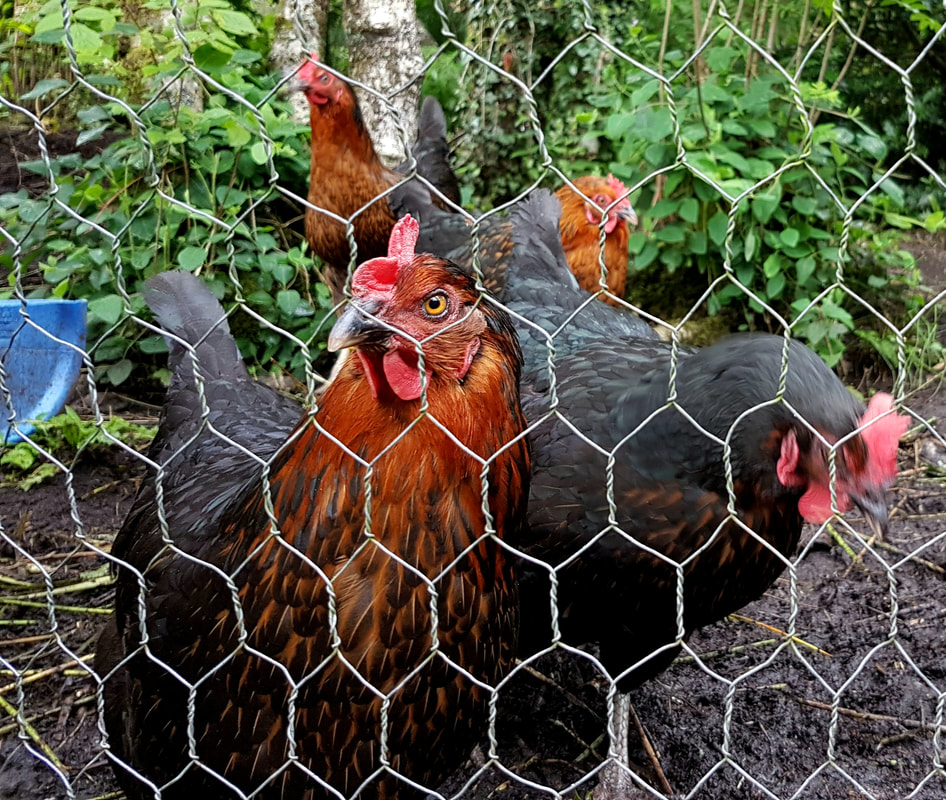

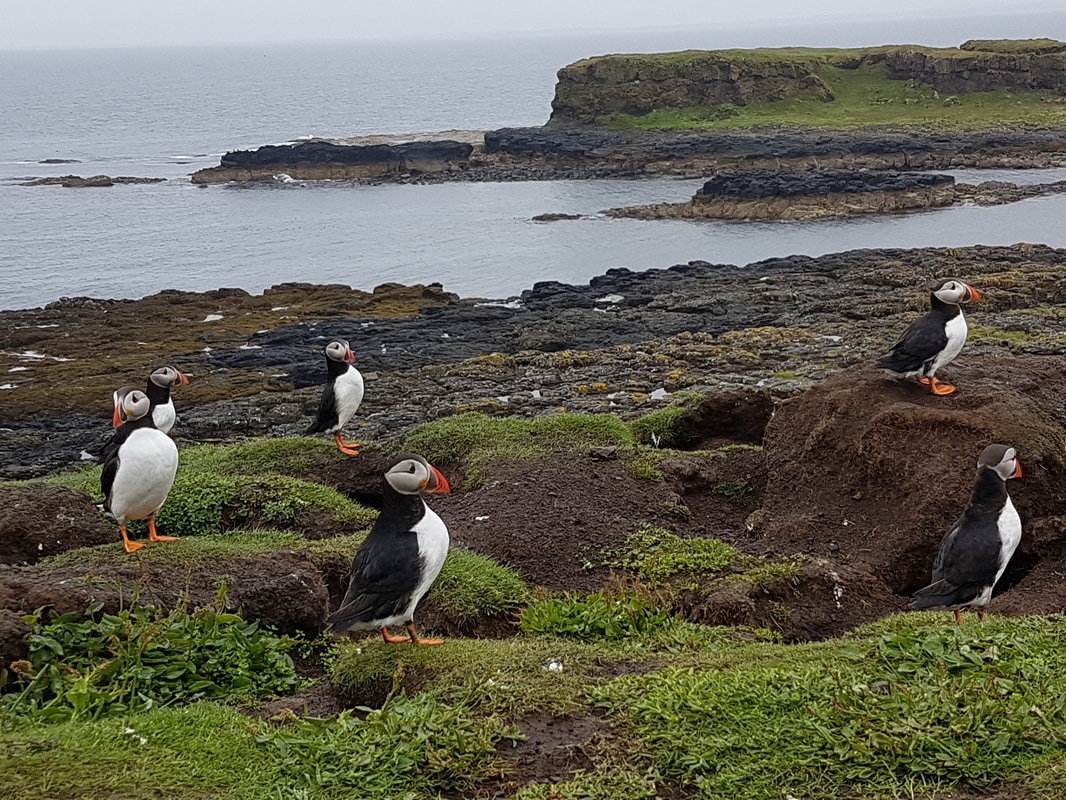
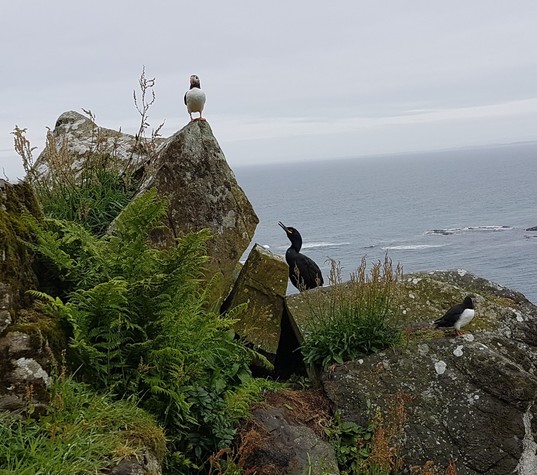
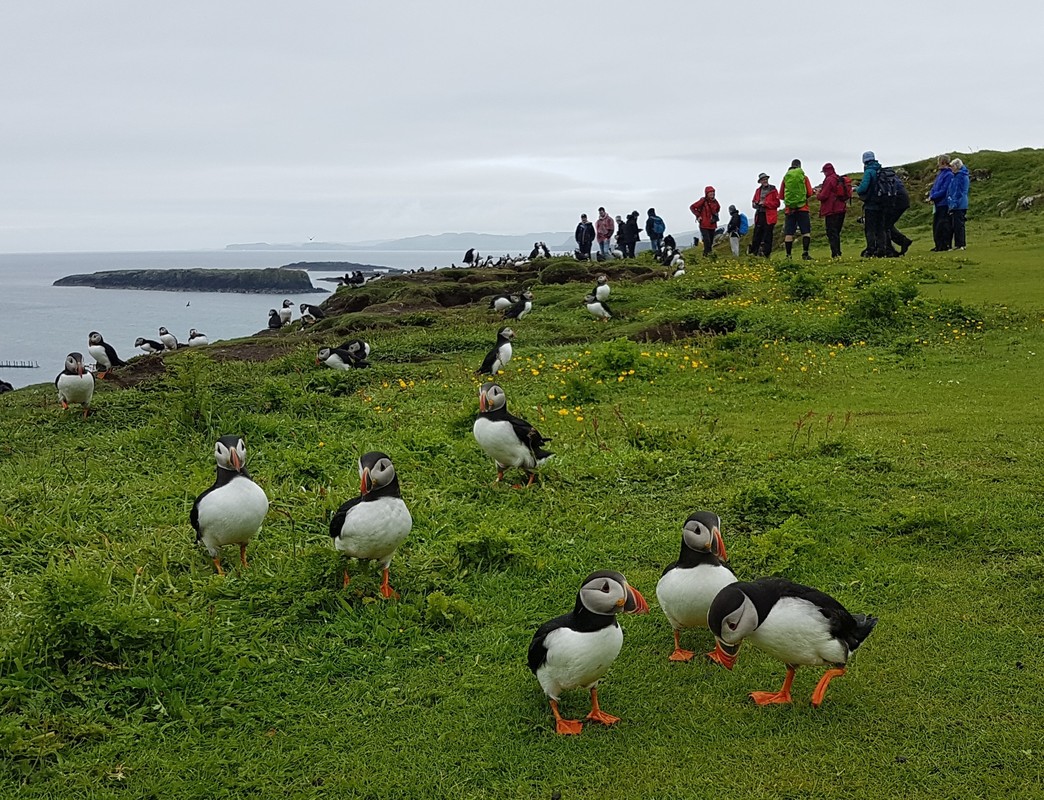
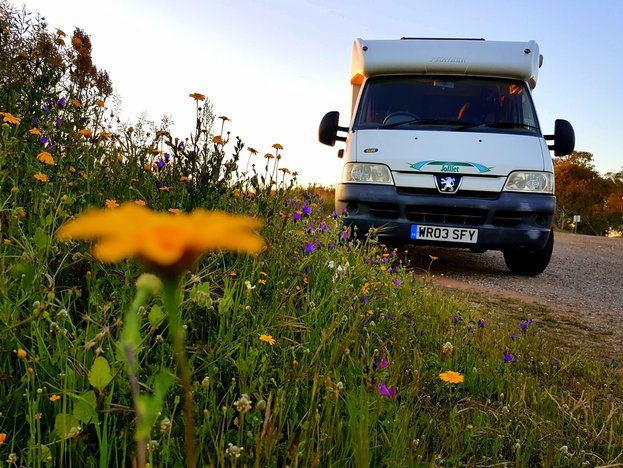
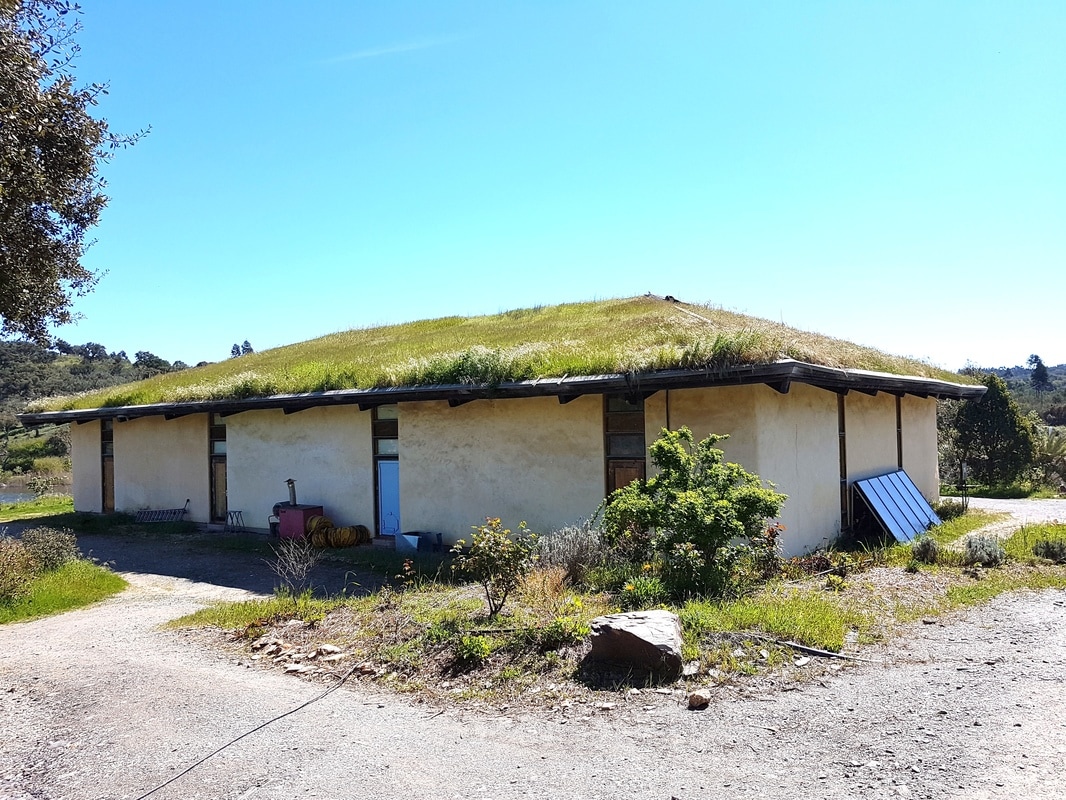
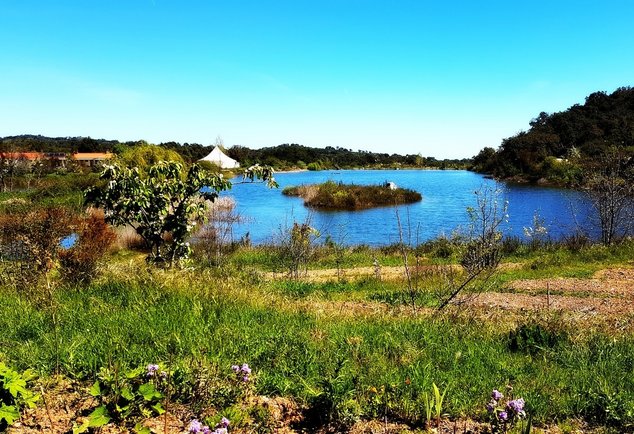
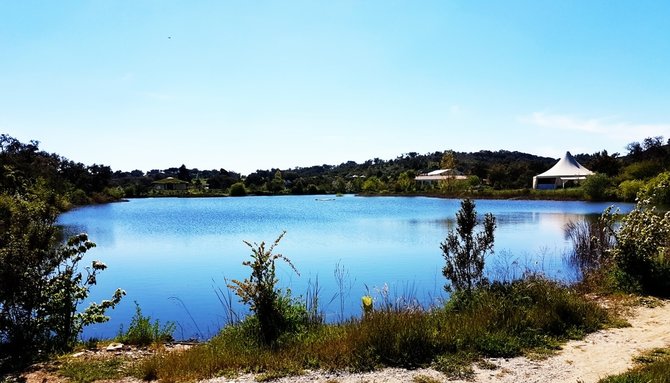
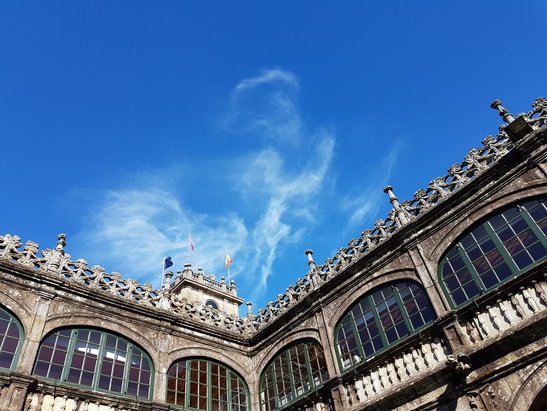
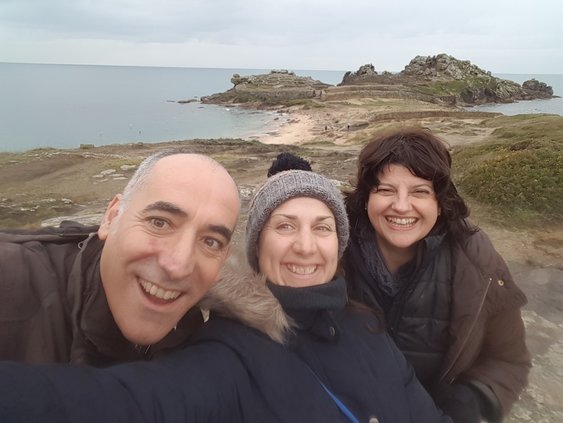
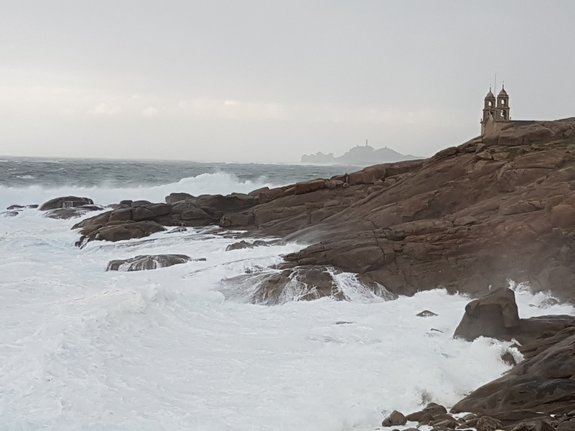
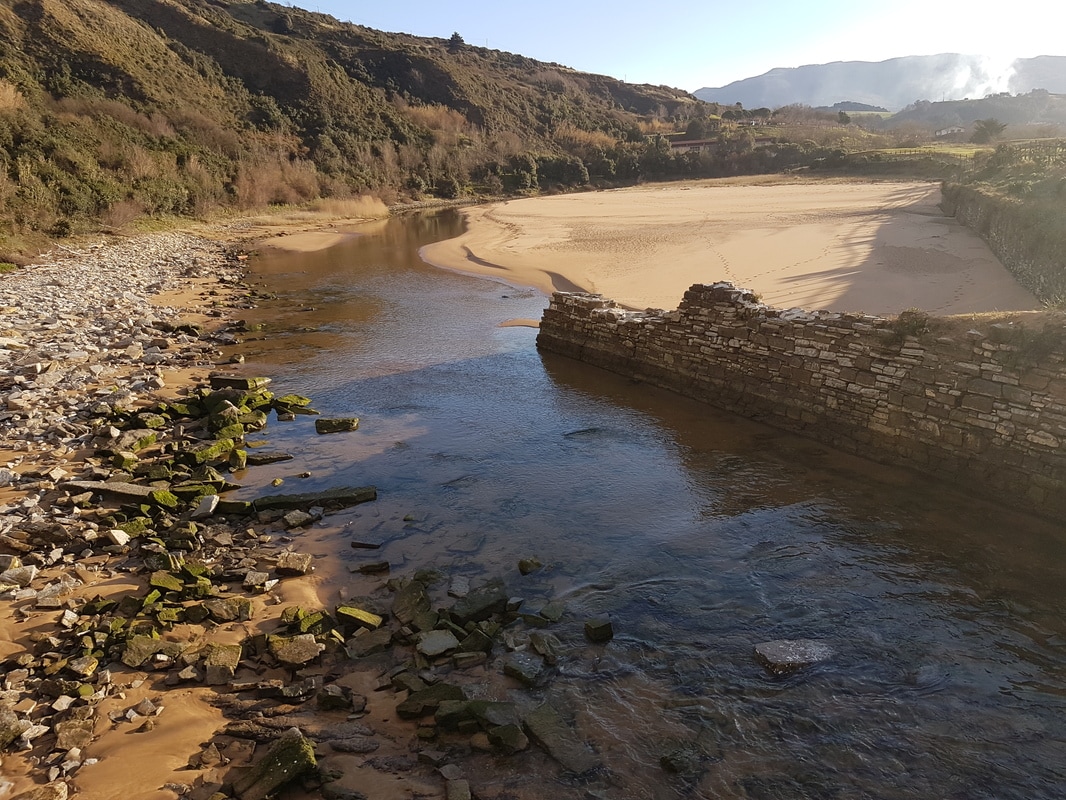
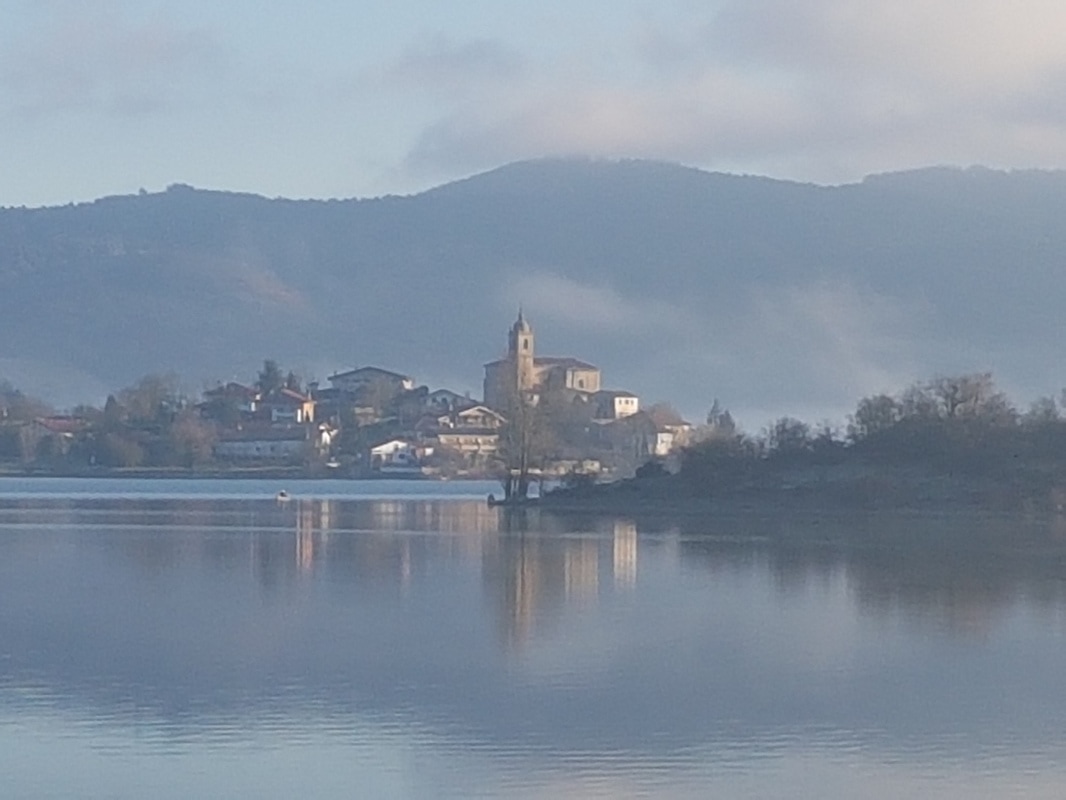
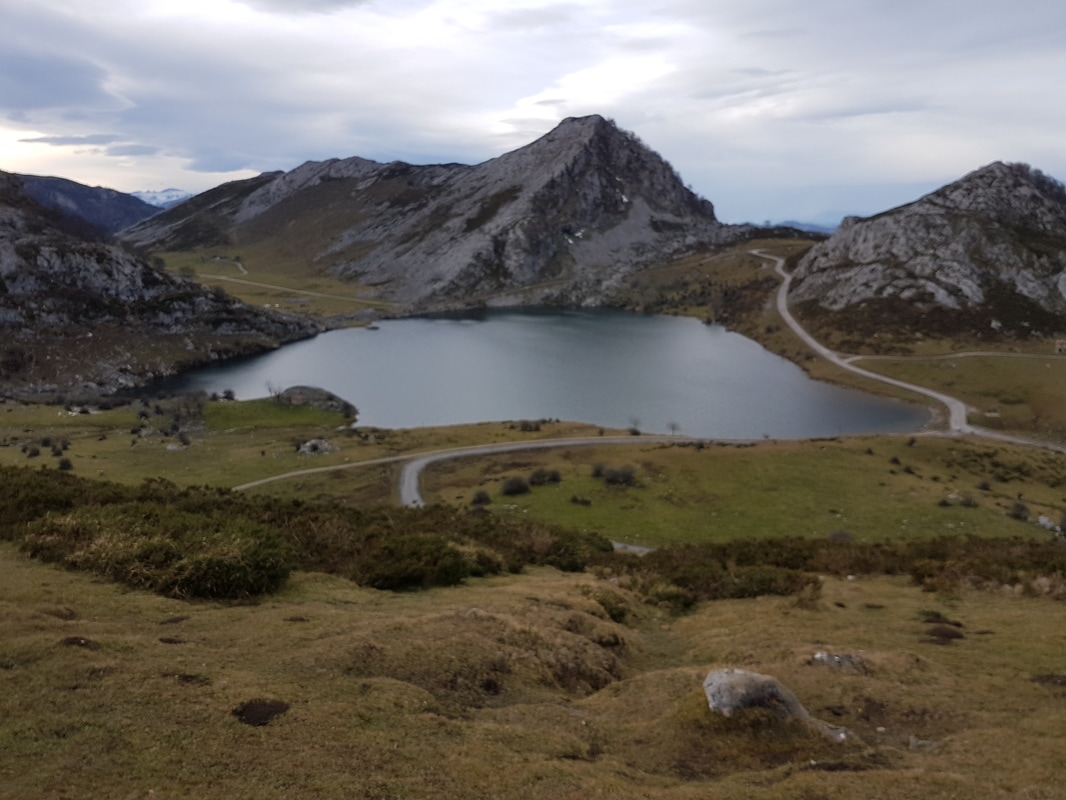
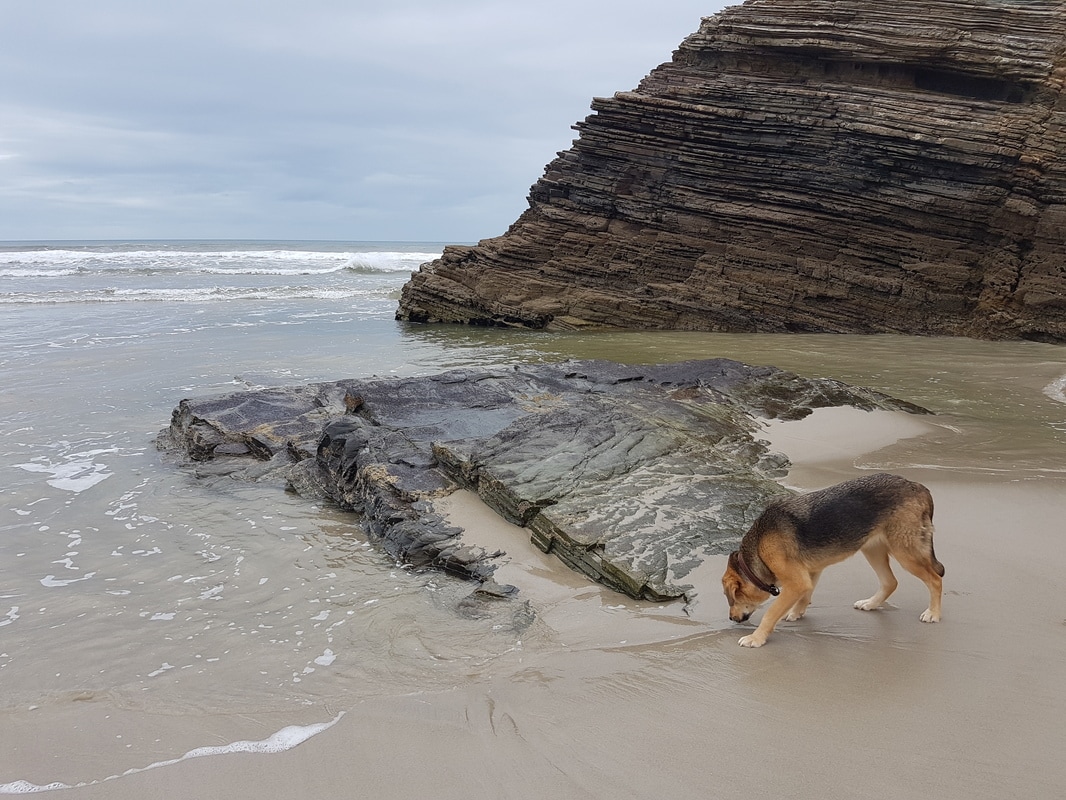
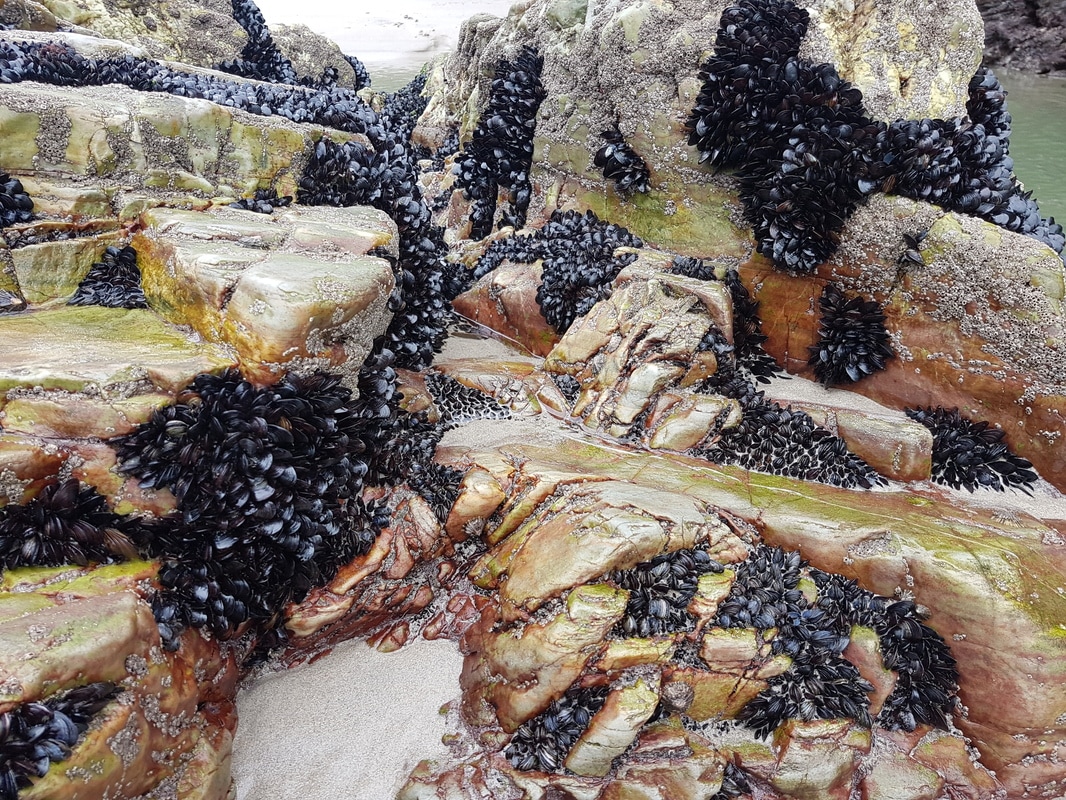
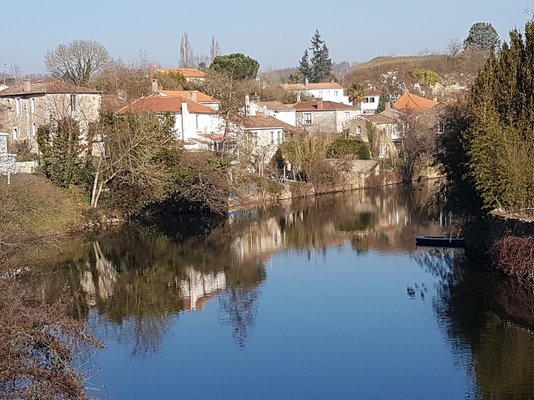
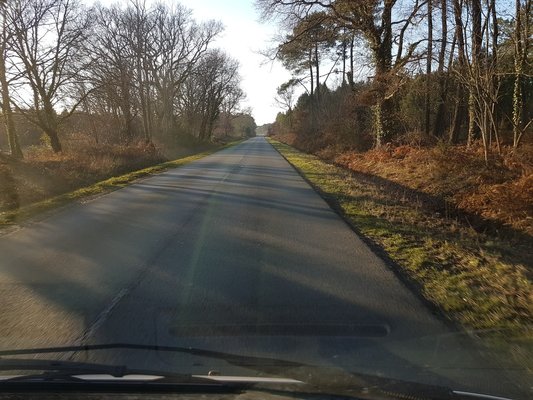
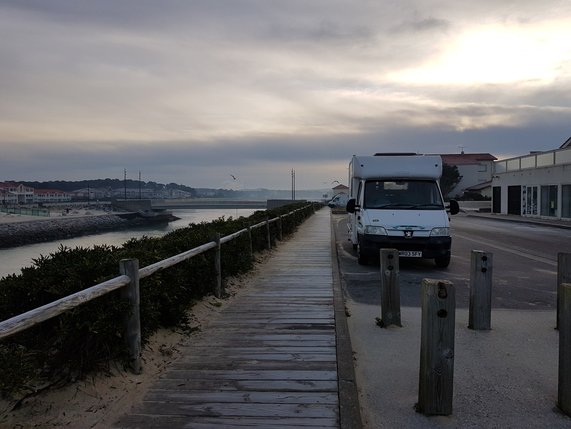
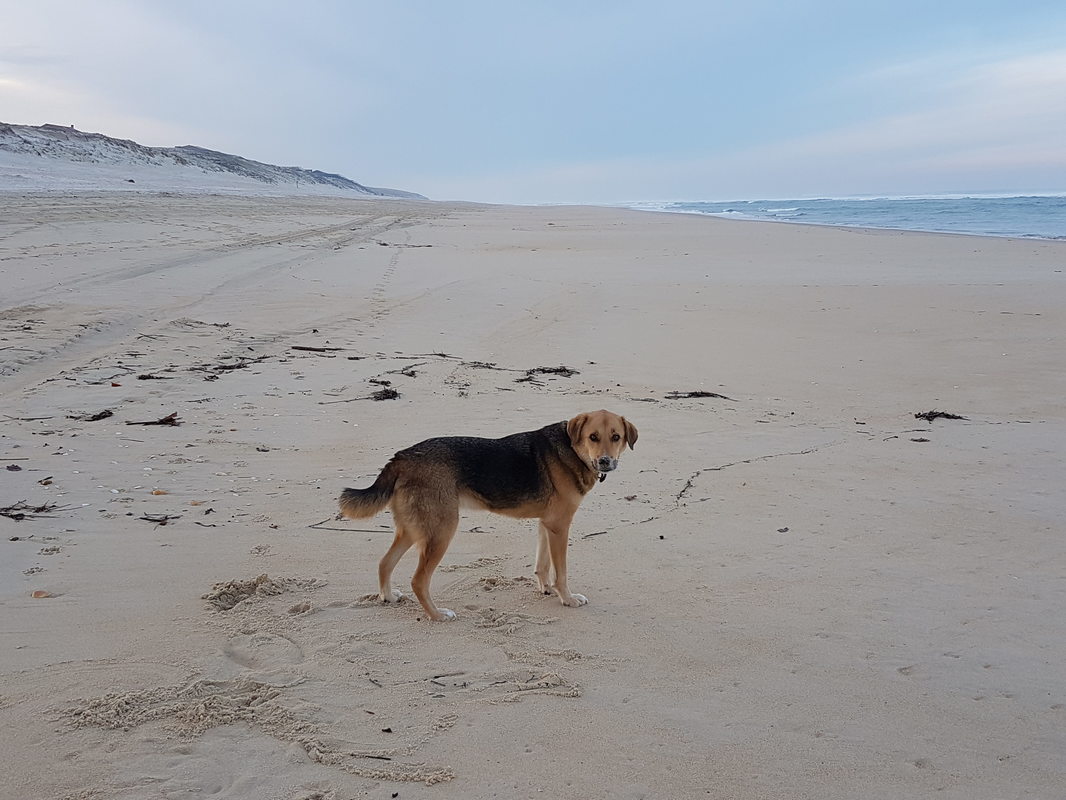
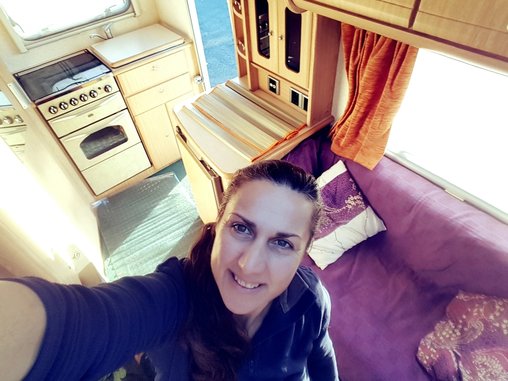
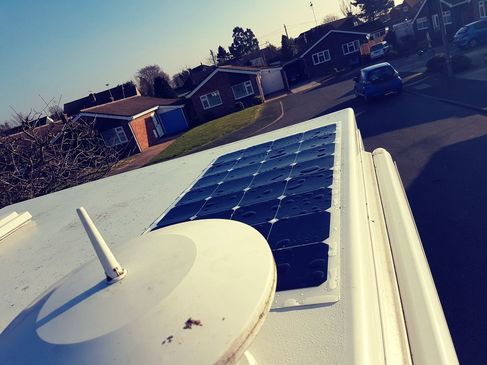
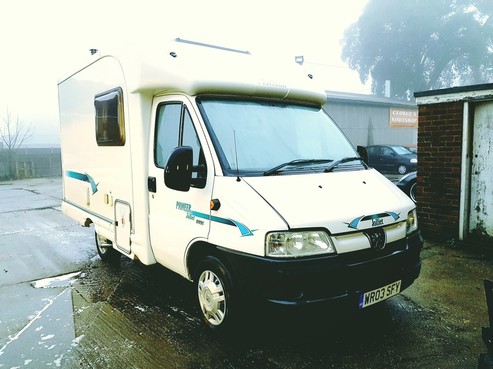
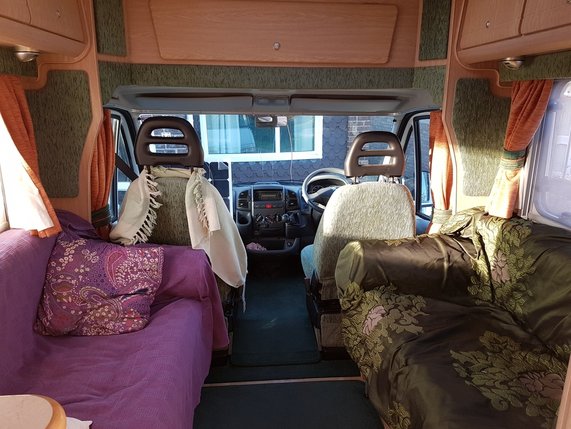
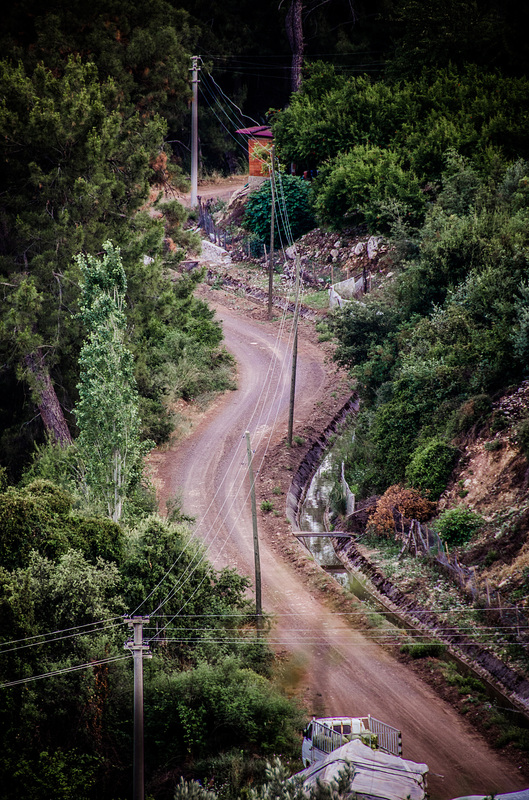

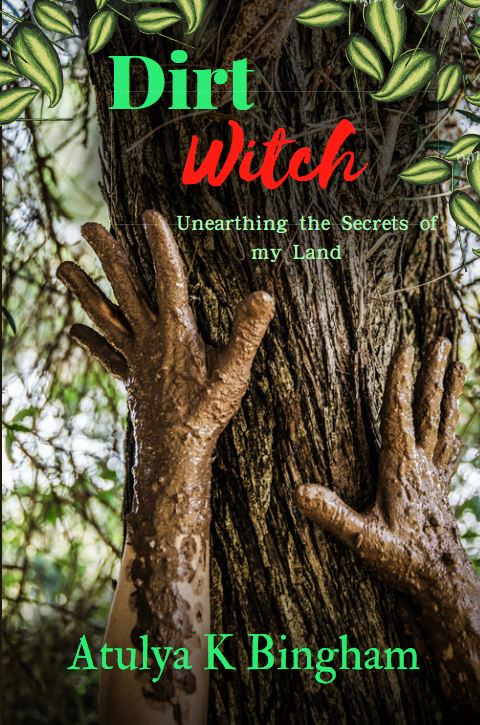
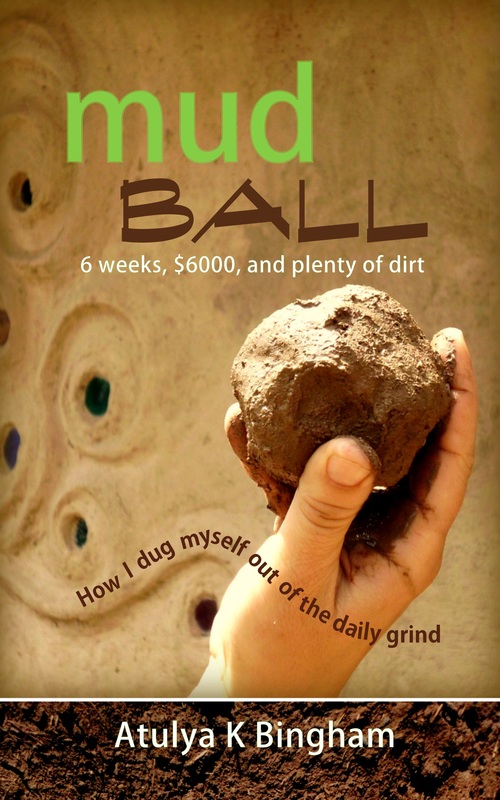
 RSS Feed
RSS Feed
